 Sign in
Sign in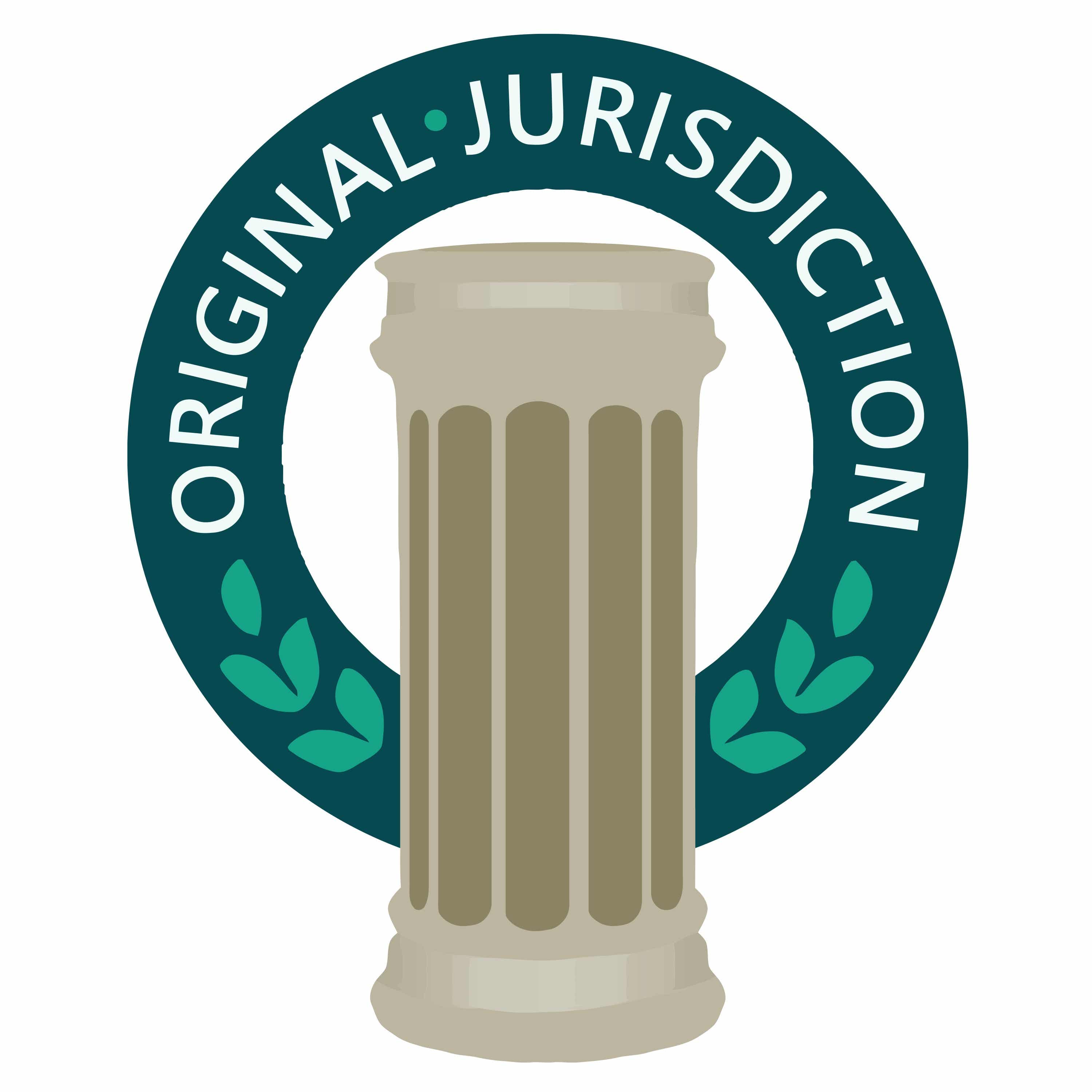
Business
News
David Lat
Original Jurisdiction, a podcast about law and the legal profession, features host David Lat interviewing some of the most interesting, influential, and important people in the world of law. It's the companion podcast to Lat's Substack newsletter of the same name. You can follow David on Twitter (@DavidLat) or email him at [email protected], and you can subscribe to his newsletter at davidlat.substack.com. davidlat.substack.com
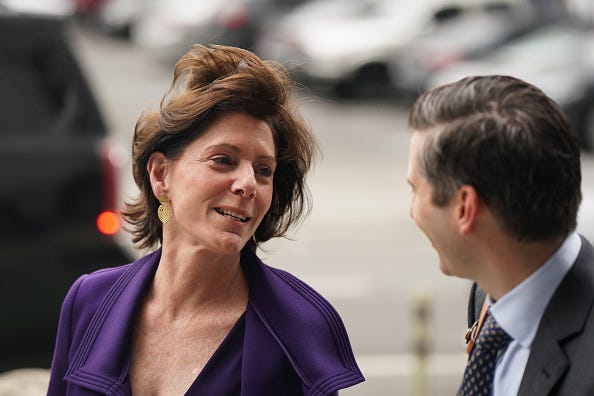
A Veteran—And Victor—Of Many Courtroom Battles: Beth Wilkinson
This is a free preview of a paid episode. To hear more, visit davidlat.substack.comVeterans Day was last week, so it was very fitting that I interviewed Beth Wilkinson, one of the nation’s top trial lawyers and founding partner of Wilkinson Stekloff. After graduating from Princeton and UVA Law, she began her career as a lawyer in the Army JAG Corps. She then continued her public service by working as a federal prosecutor, where she successfully prosecuted the Oklahoma City bombers.Over the decades, Beth has handled—and won—many other consequential cases. Earlier this year, she led the trial team that secured judgment as a matter of law for the NFL in the multibillion-dollar Sunday Ticket litigation. Last year, she served as lead trial counsel for Microsoft in the FTC’s challenge to Microsoft’s acquisition of Activision—and her victory allowed that $68.7 billion deal to go through. And she shows no signs of slowing down: she was recently retained by Visa to defend the payments giant in a bet-the-company antitrust case.Thanks to Beth for joining me to discuss her fascinating career and cases—and, of course, for her many years of service to our nation.Show Notes:* Beth Wilkinson bio, Wilkinson Stekloff* Beth Wilkinson bio, Wikipedia* Beth Wilkinson profile, Chambers and PartnersPrefer reading to listening? For paid subscribers, a transcript of the entire episode appears below.Sponsored by:NexFirm helps Biglaw attorneys become founding partners. To learn more about how NexFirm can help you launch your firm, call 212-292-1000 or email careerdevelopment at nexfirm dot com.
48:2520/11/2024
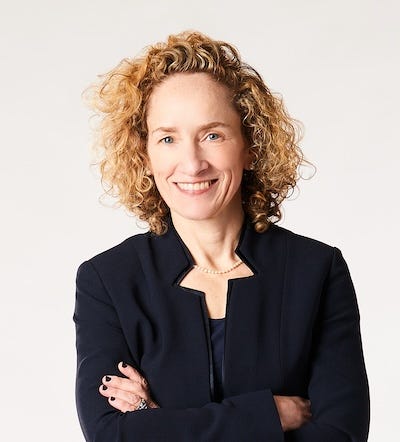
Sam Bankman-Fried And Diddy’s Appellate Ace: Alexandra Shapiro
This is a free preview of a paid episode. To hear more, visit davidlat.substack.comWelcome to Original Jurisdiction, the latest legal publication by me, David Lat. You can learn more about Original Jurisdiction by reading its About page, and you can email me at [email protected]. This is a reader-supported publication; you can subscribe by clicking here.If you ever get prosecuted by the U.S. Attorney’s Office for the Southern District of New York, I wish you luck—because you’ll need it. “The Office” has a very high conviction rate—and, like most U.S. Attorney’s Offices, the vast majority of its convictions get affirmed on appeal.If you want to maximize your chances of either prevailing at trial or on appeal against the S.D.N.Y., then you should call Alexandra Shapiro (if you can afford her). She’s the rare lawyer who can go up against The Office and win—whether at trial, in the Second Circuit, or before the U.S. Supreme Court.An alum of the S.D.N.Y. herself, as well as a former law clerk to the late Justice Ruth Bader Ginsburg, Alexandra is the co-founder (with Cynthia Arato) of a thriving boutique, Shapiro Arato Bach. Having her own firm allows Alexandra to take on cases and clients that she might not have been able to handle back when she was a partner at Latham & Watkins—whether because of client conflicts, the desire of large firms to steer clear of controversy, or Biglaw billing rates (because even if she’s expensive, she’s not Latham expensive, plus she enjoys more rate flexibility than a large firm).Speaking of controversy, Alexandra currently represents two high-profile defendants going up against The Office: FTX founder Sam Bankman-Fried, appealing his fraud convictions to the Second Circuit, and Sean “Diddy” Combs, scheduled to go to trial in May 2025 on sex-trafficking and racketeering charges. She discusses these cases (to the extent that she can)—as well as her own interesting and impressive career, her approach to crafting appellate briefs, and her legal thriller, Presumed Guilty (2022)—in the latest episode of the Original Jurisdiction podcast. (Programming note: as some of you might have noticed, this episode is a week early, based on my usual every-other-week schedule. But between now and the end of the year, the schedule might get a little funky because of the demanding schedules of my next few guests, plus the holidays. I will try to stick to Wednesday as the drop date, but I can’t guarantee much beyond that.)Show Notes:* Alexandra A.E. Shapiro bio, Shapiro Arato Bach LLP* Shapiro Arato Bach’s Dynamite Trio: A Head-Turning Alternative to Big Law, by Emily Jackoway for Lawdragon* Presumed Guilty, AmazonPrefer reading to listening? For paid subscribers, a transcript of the entire episode appears below.Sponsored by:NexFirm helps Biglaw attorneys become founding partners. To learn more about how NexFirm can help you launch your firm, call 212-292-1000 or email careerdevelopment at nexfirm dot com.
45:3806/11/2024
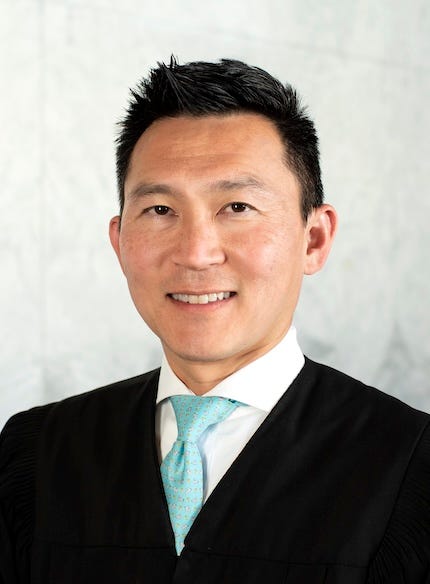
From Wachtell To The White House To The Federal Bench: Judge Kenneth Lee
This is a free preview of a paid episode. To hear more, visit davidlat.substack.comWith a contentious election just around the corner, tensions are running high, and it’s easy to focus on what divides us. So my latest podcast interview, featuring Judge Kenneth Lee of the U.S. Court of Appeals for the Ninth Circuit, is quite timely. The son of immigrants from South Korea—and an immigrant himself, who came to the United States at age four—Judge Lee still believes in the greatness of America.In our conversation, Judge Lee and I discussed his parents, including the challenges they faced after arriving in the U.S.; his high-powered legal career, including stints at Wachtell Lipton, the White House Counsel’s office, and Jenner & Block; the best and worst parts of being a judge; his philosophy of legal writing; and his approach to law clerk hiring. We also looked back on our time together at Wachtell, which is where we first met, some 23 years ago—and where Ken racked up billable hours that you’ll find hard to believe. But as his former colleague, I can attest that he works incredibly hard—now in service to the Constitution and laws of the United States.Show Notes:* Kenneth K. Lee bio, Wikipedia* Kenneth Lee, Senate Judiciary Committee questionnairePrefer reading to listening? For paid subscribers, a transcript of the entire episode appears below.Sponsored by:NexFirm helps Biglaw attorneys become founding partners. To learn more about how NexFirm can help you launch your firm, call 212-292-1000 or email careerdevelopment at nexfirm dot com.
48:0630/10/2024
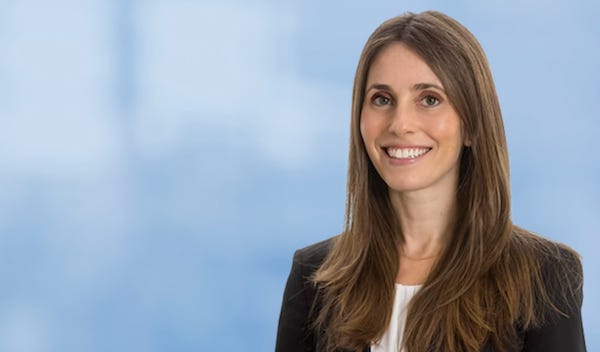
A 2024 Supreme Court Preview, With Morgan Ratner
This is a free preview of a paid episode. To hear more, visit davidlat.substack.comOn Monday of last week, the customary first Monday of October, the U.S. Supreme Court kicked off October Term 2024. So I thought it might be a good idea to offer my listeners an overview of the 2024-2025 Term—and I could think of no better guide to the new SCOTUS Term than Morgan Ratner. I met Morgan this past July, when we participated in a Supreme Court “Year in Review” panel together, and I was struck by her talent for explaining complicated cases with exceptional clarity and accuracy.Morgan’s knowledge of the Court shouldn’t come as a surprise. She has argued before the Court in nine cases, first as an assistant to the U.S. solicitor general and more recently as a partner at Sullivan & Cromwell. She clerked for two of the Court’s current members: then-Judge Brett Kavanaugh, during his time on the D.C. Circuit, and Chief Justice John Roberts.Morgan graduated first in her class from Harvard Law School. Current and aspiring law students will be interested in—and perhaps surprised by—her advice on how to succeed in law school.So listen to this episode and learn more about Morgan Ratner. For SCOTUS devotees, she’s someone you should get to know.Show Notes:* Morgan L. Ratner bio, Sullivan & Cromwell* 40 Under 40 - Morgan Ratner of Sullivan & Cromwell, by Lisa Helem and MP McQueen for Bloomberg Law* 12 Lawyers Who Are The Future Of The Supreme Court Bar, by Jeff Overley and Katie Buehler for Law360Prefer reading to listening? For paid subscribers, a transcript of the entire episode appears below.Sponsored by:NexFirm helps Biglaw attorneys become founding partners. To learn more about how NexFirm can help you launch your firm, call 212-292-1000 or email careerdevelopment at nexfirm dot com.
46:1316/10/2024
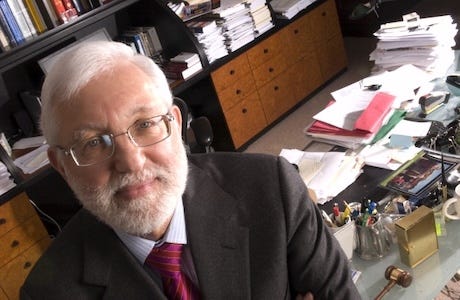
A True Judicial Maverick: Judge Jed Rakoff
This is a free preview of a paid episode. To hear more, visit davidlat.substack.comOur independent judiciary has been described—accurately so, in my opinion—as “the crown jewel of our constitutional republic.” And when it comes to the federal judiciary, few of its members are as independent-minded as Judge Jed S. Rakoff. Judge Rakoff, 81, has served on the Southern District of New York since 1996. During his almost three decades on the bench, he has authored more than 2,000 opinions—many of them groundbreaking and headline-making, and some quite controversial.In addition to his prodigious judicial output, Judge Rakoff is a leading commentator on the American legal system. He contributes regularly to The New York Review of Books, and he wrote an excellent book of his own: Why the Innocent Plead Guilty and the Guilty Go Free, and Other Paradoxes of Our Broken Legal System (2021).With a new Term of the U.S. Supreme Court starting next week, I thought it would be interesting to interview Judge Rakoff about his latest column for The Review, which discusses the current Court—and doesn’t pull any punches. And in our conversation, Judge Rakoff didn’t walk back any of his criticism. When I asked him if he respects the Court, he artfully dodged—and later on in our interview, he described the Court’s rulings on gun control as not only “misguided,” but “immoral.”We found time to discuss fun stuff, too. We talked about his approach to clerk hiring—being in FedSoc is not a black mark—as well as his hobbies. In his spare time, he enjoys participating in international ballroom dance competitions (with his wife Ann), writing satirical lyrics to musical compositions, and officiating at weddings (91 and counting). Check it all out, in the latest Original Jurisdiction podcast.Show Notes:* Judge Jed Rakoff bio, U.S. District Court for the Southern District of New York* Hon. Jed S. Rakoff, by Luke McGrath for the Federal Bar Association* The Most Conservative Branch, by Judge Jed S. Rakoff for The New York Review of BooksPrefer reading to listening? For paid subscribers, a transcript of the entire episode appears below.Sponsored by:NexFirm helps Biglaw attorneys become founding partners. To learn more about how NexFirm can help you launch your firm, call 212-292-1000 or email careerdevelopment at nexfirm dot com.
46:2802/10/2024
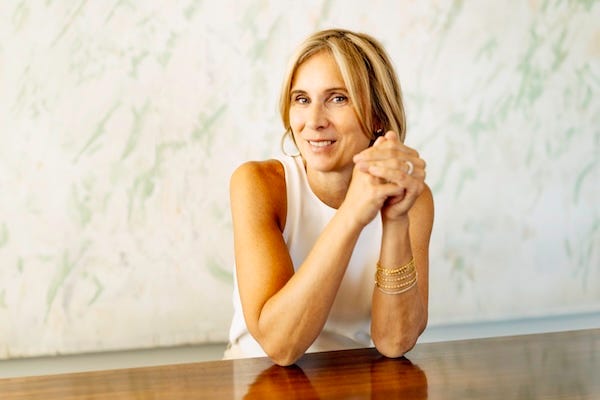
A Leading Legal Storyteller: Dawn Schneider
This is a free preview of a paid episode. To hear more, visit davidlat.substack.comWelcome to Original Jurisdiction, the latest legal publication by me, David Lat. You can learn more about Original Jurisdiction by reading its About page, and you can email me at [email protected]. This is a reader-supported publication; you can subscribe by clicking here.Where do I get my story ideas? Most arise organically out of the news, but some come from topic suggestions aka “pitches.” Sometimes pitches come from lawyers in the news, and sometimes they come from a lawyer or law firm’s public-relations or communications team—media-savvy professionals who work for attorneys and firms to help them secure favorable press (or avoid negative coverage).Over the years, one of my best sources of pitches has been Dawn Schneider. After graduating from law school, Dawn worked in communications for two major corporations, Johnson & Johnson and Altria. She then combined her legal and media expertise and pivoted to focus on law firms, serving as director of communications at Boies Schiller Flexner. And then, ten years ago this month, she launched her own media-advisory firm, Schneider Group Media—where she continues to work for leading lawyers and law firms, as well as clients beyond the legal realm, helping them navigate a challenging, rapidly evolving media landscape.I have a fair number of readers who are interested in “alternative careers”—roles that don’t involve practicing law, but where legal education and experience are valuable. So I thought it would be enlightening and enjoyable to interview Dawn, who has deployed her legal training and talent for communication in a cool and unusual way.Thanks to Dawn for joining me, and congratulations to her on Schneider Group Media’s tenth anniversary.Show Notes (Dawn doesn’t have much of an online presence—she prefers to keep the focus on her clients—but here’s her bio, as well as pieces I’ve written that resulted from her work):* Dawn Schneider bio, Schneider Group Media* On The Retirement Of Miles Ruthberg And The Rise Of Litigation At Latham & Watkins, by David Lat for Above the Law* A Leading Litigation Boutique Turns 25, by David Lat for Original Jurisdiction* Boies Schiller Star’s Ski Accident Tests Strength—and Builds It, by David Lat for Bloomberg LawPrefer reading to listening? For paid subscribers, a transcript of the entire episode appears below.Sponsored by:NexFirm helps Biglaw attorneys become founding partners. To learn more about how NexFirm can help you launch your firm, call 212-292-1000 or email careerdevelopment at nexfirm dot com.
39:5818/09/2024
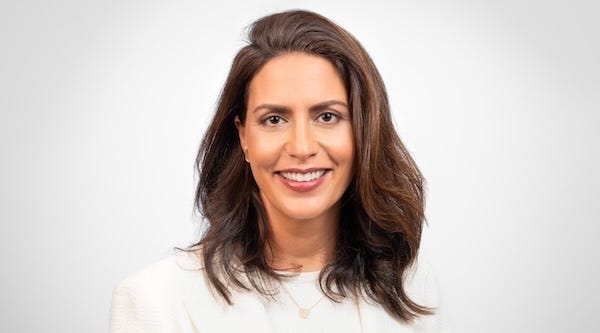
‘Find The Joy’: Susman Godfrey Partner Davida Brook
This is a free preview of a paid episode. To hear more, visit davidlat.substack.comWelcome to Original Jurisdiction, the latest legal publication by me, David Lat. You can learn more about Original Jurisdiction by reading its About page, and you can email me at [email protected]. This is a reader-supported publication; you can subscribe by clicking here.Defamation law and copyright law: I have a keen interest in both, which shouldn’t be surprising given what I do for a living. So two litigations I’ve been following closely are (1) the various defamation lawsuits brought by Dominion Voting Systems—including its case against Fox News, which settled for a whopping $787.5 million—and (2) the copyright lawsuit brought by The New York Times against OpenAI and Microsoft.Besides being fascinating cases with the potential to reshape the modern American media landscape, what do these matters share in common? The plaintiffs have the same lawyer: Susman Godfrey partner Davida Brook. Although she’s only 40, she has already been recognized as one of the nation’s top trial attorneys by Forbes, The American Lawyer, Law360, Lawdragon, and many other publications.Davida and I first met years ago, when I spoke at Stanford Law School and she was a student (yes, I’m that old). So I thought it would be fun to catch up by having her on the podcast—and it was.We discussed her impressive career path; the Dominion and Times cases, including their possible societal implications; and what it was like to work with and learn from the late Steve Susman, founder of Susman Godfrey and an all-time great courtroom advocate. You can tune into our conversation, covering these and many other subjects, in this new episode of the Original Jurisdiction podcast.Show Notes:* Davida Brook bio, Susman Godfrey* Meet America’s Top 200 Lawyers (2024), by Liane Jackson for Forbes* Lawyer Limelight: Davida Brook, by Katrina Dewey for LawdragonPrefer reading to listening? For paid subscribers, a transcript of the entire episode appears below.Sponsored by:NexFirm helps Biglaw attorneys become founding partners. To learn more about how NexFirm can help you launch your firm, call 212-292-1000 or email careerdevelopment at nexfirm dot com.
44:5904/09/2024
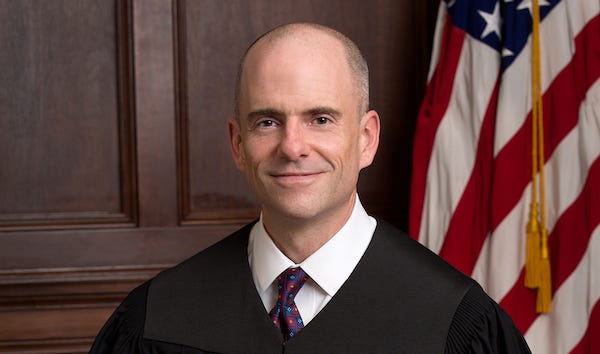
The Great ‘Concurrer’: Judge Kevin Newsom
This is a free preview of a paid episode. To hear more, visit davidlat.substack.comWelcome to Original Jurisdiction, the latest legal publication by me, David Lat. You can learn more about Original Jurisdiction by reading its About page, and you can email me at [email protected]. This is a reader-supported publication; you can subscribe by clicking here.Here’s a trivia question for devotees of Original Jurisdiction: excluding Supreme Court justices and Judge Aileen Cannon, who has been most frequently recognized in these pages as Judge of the Week? It’s a tie between a pair of four-time honorees: Judge James Ho (5th Cir.), whom I’ve previously interviewed, and Judge Kevin Newsom (11th Cir.)—my latest guest on the Original Jurisdiction podcast.This month marks the seventh anniversary of Judge Newsom’s appointment to the U.S. Court of Appeals for the Eleventh Circuit. And although seven years is not a long time by the standards of judicial service, Judge Newsom has already developed a national reputation as one of the sharpest thinkers and writers on the federal bench.How has he put himself on the map? Many of history’s most celebrated jurists have done so through dazzling dissents, such as Justice John Marshall Harlan, often called “The Great Dissenter,” and Justice Antonin Scalia.But Judge Newsom has done so through a more unusual vehicle: the concurrence (including the occasional self-concurrence, i.e., a concurrence to his own majority opinion). In a series of thoughtful and scholarly concurrences, he has tackled some of the messiest doctrinal areas and knottiest problems in American law, including standing, nondelegation, complex First and Second Amendment issues, the burden-shifting analysis of McDonnell Douglas v. Green, and jurisdiction under Bell v. Hood.Judge Newsom and I discuss why he writes these concurrences—plus Justice Elena Kagan’s critique of superfluous concurrences, how to hire great law clerks (and feed them to the Supreme Court), and the potential utility of AI for originalism—in the latest episode of the Original Jurisdiction podcast.Show Notes:* Judge Kevin C. Newsom bio, U.S. Court of Appeals for the Eleventh Circuit* Remarks of Judge Kevin C. Newsom, Harvard Journal of Law & Public Policy* Interview of Judge Kevin Newsom, by David Oscar Markus for For the DefensePrefer reading to listening? For paid subscribers, a transcript of the entire episode appears below.Sponsored by:NexFirm helps Biglaw attorneys become founding partners. To learn more about how NexFirm can help you launch your firm, call 212-292-1000 or email careerdevelopment at nexfirm dot com.
50:5821/08/2024
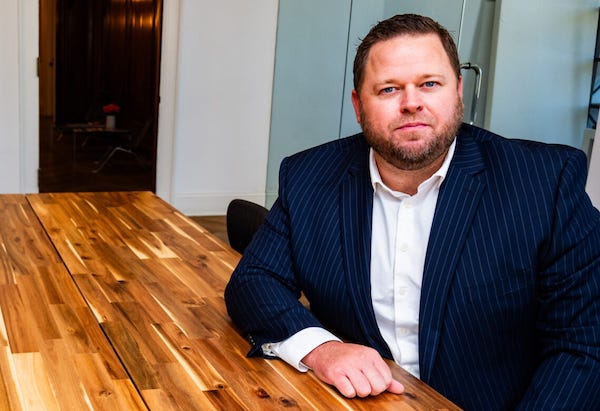
‘Just Keep Going’: Former FTX General Counsel Ryne Miller
This is a free preview of a paid episode. To hear more, visit davidlat.substack.comWelcome to Original Jurisdiction, the latest legal publication by me, David Lat. You can learn more about Original Jurisdiction by reading its About page, and you can email me at [email protected]. This is a reader-supported publication; you can subscribe by clicking here. Thanks!By next Thursday, August 16, creditors must vote on whether to approve the Chapter 11 liquidation plan of FTX, the once high-flying cryptocurrency exchange. FTX’s former CEO, Sam Bankman-Fried aka SBF—the son of two Stanford law professors, who went on to become one of the world’s youngest billionaires—is behind bars. He’s in the process of appealing his convictions for fraud, conspiracy, and money laundering, as well as his 25-year prison sentence.Ryne Miller served as general counsel of FTX US, one of several corporate entities that was part of the sprawling FTX empire. Working out of New York, he was not part of SBF’s high-living, Bahamas-based inner circle. But after a fateful phone call in November 2022 from SBF’s father, Joe Bankman, informing Ryne of a multibillion-dollar “liquidity hole”—some $8 billion to $10 billion in FTX customer deposits that had somehow gone missing—he played a crucial role in responding to the situation. By the end of that week, FTX was in bankruptcy.Why did Ryne leave a partnership at Sullivan & Cromwell, one of the world’s leading law firms, to become the GC of FTX US? Should he have noticed certain red flags at the company, such as the lack of a board or a weak compliance function? What lessons does he draw from his time at the company? And how is he putting them to work today at his new law firm, Miller Strategic Partners, which marks its one-year anniversary next month? Ryne and I covered all this and more, in the latest edition of the Original Jurisdiction podcast.Show Notes:* Ryne Miller bio, Miller Strategic Partners* Former FTX general counsel starts his own law firm, by MK Manoylov for The BlockPrefer reading to listening? For paid subscribers, a transcript of the entire episode appears below.Sponsored by:NexFirm helps Biglaw attorneys become founding partners. To learn more about how NexFirm can help you launch your firm, call 212-292-1000 or email careerdevelopment at nexfirm dot com.
45:4307/08/2024
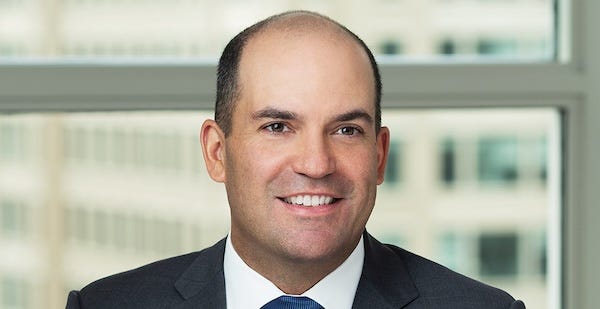
A Relentlessly Successful SCOTUS Advocate: Roman Martinez
This is a free preview of a paid episode. To hear more, visit davidlat.substack.comOne of the most consequential developments of the last Supreme Court Term was the overruling of Chevron v. Natural Resources Defense Council, Inc., the 40-year-old precedent directing courts to defer to agencies’ reasonable interpretations of ambiguous statutes. It came about through two cases: Relentless, Inc. v. Department of Commerce, argued by Roman Martinez, and Loper Bright Enterprises v. Raimondo, argued by former U.S. solicitor general Paul Clement (a past podcast guest).Today I’m pleased to be joined by Roman Martinez. One of the leading Supreme Court advocates of his generation, Martinez, 45, has argued 14 cases before the Court. But none has been as consequential—or controversial—as the aptly named Relentless.How does Martinez respond to claims that Relentless will have relentlessly negative consequences for American society? We explore the implications of the overturning of Chevron—along with Martinez’s clerkships for then-Judge Kavanaugh and Chief Justice Roberts, his thoughts on the old versus new SCOTUS argument formats, his style as a Supreme Court advocate, and his “secret weapon” in preparing for high-court appearances—in the latest Original Jurisdiction podcast.Show Notes:* Roman Martinez bio, Latham & Watkins* Roman Martinez profile, Chambers and Partners* 40 Under 40: Roman Martinez, Washington Business JournalPrefer reading to listening? For paid subscribers, a transcript of the entire episode appears below.Sponsored by:NexFirm helps Biglaw attorneys become founding partners. To learn more about how NexFirm can help you launch your firm, call 212-292-1000 or email careerdevelopment at nexfirm dot com.
42:1424/07/2024
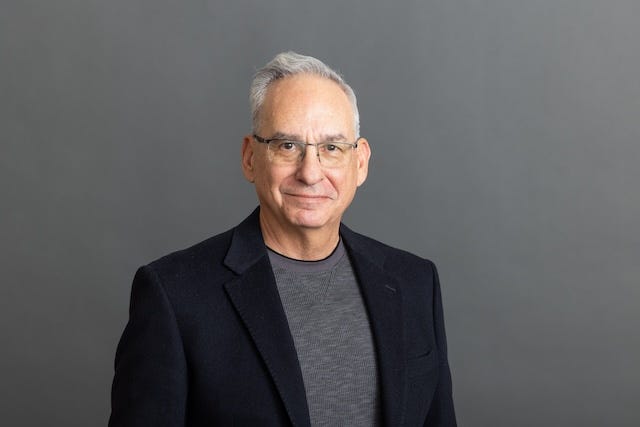
A Life For Liberty: Randy Barnett
This is a free preview of a paid episode. To hear more, visit davidlat.substack.comAre we all originalists now? Definitely not; originalism has no shortage of critics.But as the latest Term of the U.S. Supreme Court made clear, originalism is the dominant mode of constitutional interpretation at One First Street today. As the justices debate the doctrine’s finer theoretical points, such as the proper use of history and tradition, it’s clear that the debate is no longer “originalism or not originalism,” but “which originalism” or “whose originalism.”So it’s more important than ever to understand the originalist mindset. And if you’re looking for help on that front, I have a book recommendation: Professor Randy Barnett’s new memoir, A Life for Liberty: The Making of an American Originalist. As promised by its subtitle, the book provides excellent insight into originalism as a theory—but as an engaging and enjoyable memoir, it’s far more fun to read than any casebook or treatise.What drew Randy Barnett to originalism? Why does he view his losses in two landmark Supreme Court cases—Gonzales v. Raich, a Commerce Clause challenge to criminalizing medical marijuana, and NFIB v. Sebelius, a nearly successful effort to topple the Affordable Care Act—as victories of a sort? Why did he decide to write a memoir—and why does he think you should, too? All this and more is revealed—on the latest episode of the Original Jurisdiction podcast.Show Notes:* Randy E. Barnett bio, Georgetown University Law Center* A Life for Liberty: The Making of an American Originalist, Amazon* Libertarianism Updated, by Randy E. Barnett for Law & LibertyPrefer reading to listening? For paid subscribers, a transcript of the entire episode appears below.Sponsored by:NexFirm helps Biglaw attorneys become founding partners. To learn more about how NexFirm can help you launch your firm, call 212-292-1000 or email careerdevelopment at nexfirm dot com.
41:3610/07/2024
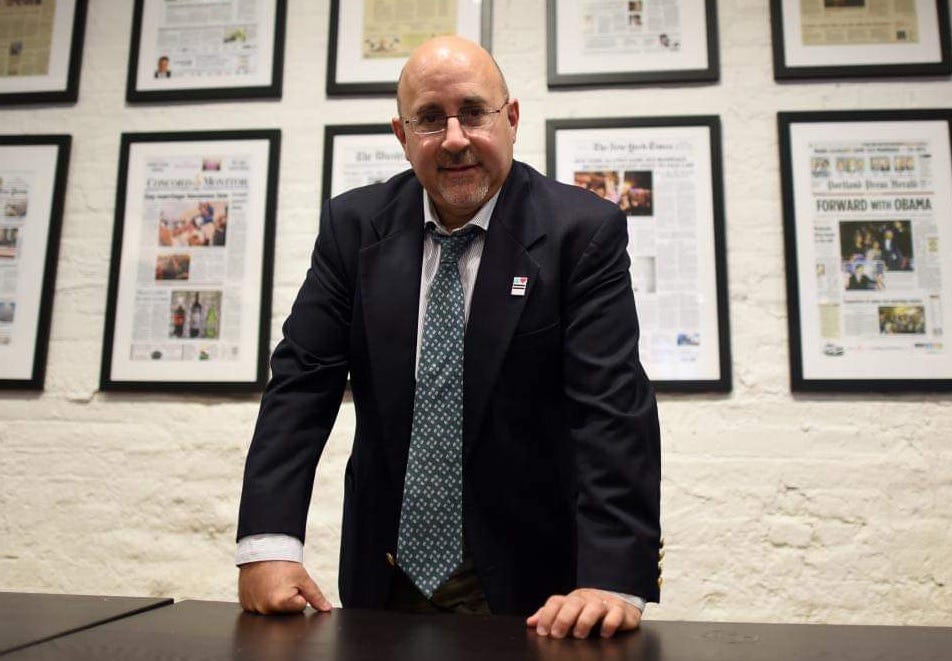
Winning The Freedom To Marry: Evan Wolfson
This is a free preview of a paid episode. To hear more, visit davidlat.substack.comHappy Pride—and happy June 26. As the Supreme Court hands down its final decisions of the Term over the next few days, it’s worth reflecting on how June 26 is the day the Court issued three of its landmark gay-rights decisions: Lawrence v. Texas (2003), United States v. Windsor (2013), and Obergefell v. Hodges (2015).Obergefell was issued in 2015, the same year that my husband Zach and I got married. And I would say that we—and really all married same-sex couples in the United States—owe a debt of gratitude to my podcast guest for today: Evan Wolfson, founder of Freedom to Marry, the groundbreaking campaign that won marriage equality in the United States and ignited a global movement. Evan has garnered many awards for his work over the years, including recognition as one of the 100 most influential lawyers in America by The National Law Journal and one of the 100 most influential people in the world by Time Magazine.What led Evan to focus his career on the fight for same-sex marriage? What was his thinking in launching Freedom to Marry? What are some secrets of the success of the marriage-equality movement? And what lessons can it offer to other struggles for social justice?Check out our conversation to learn all this and more. Thanks to Evan for joining me—and for his decades of work in advancing marriage equality and LGBTQ rights, both in the United States and around the globe.Show Notes:* Evan Wolfson bio, Dentons* What the Freedom to Marry Campaign Can Teach Middle East Peacemakers, by Evan Wolfson for U.S. News & World ReportPrefer reading to listening? For paid subscribers, a transcript of the entire episode appears below.Sponsored by:NexFirm helps Biglaw attorneys become founding partners. To learn more about how NexFirm can help you launch your firm, call 212-292-1000 or email careerdevelopment at nexfirm dot com.
53:5626/06/2024
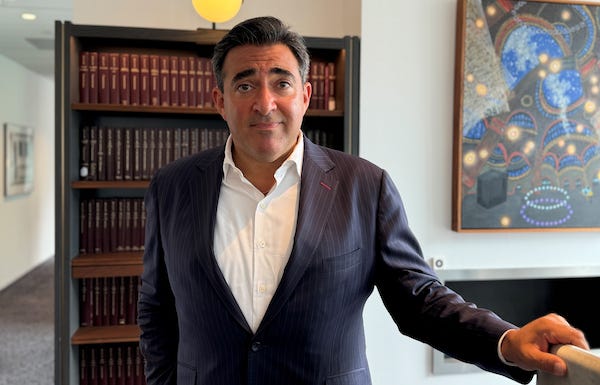
A Top Trial Lawyer And Father Of 11: Michael Williams
This is a free preview of a paid episode. To hear more, visit davidlat.substack.comI’ve been honored to have some of the nation’s leading litigators on this podcast. But I have not had a guest who’s both a renowned courtroom advocate and parent of 11 children—until today.Meet Michael Williams. After graduating from Georgetown Law, summa cum laude and first in his class, he clerked for then-Chief Judge Douglas H. Ginsburg of the D.C. Circuit and Justice Anthony M. Kennedy of the Supreme Court. Mike then joined the D.C. office of Kirkland & Ellis, where he is a share aka equity partner. He has won numerous honors and accolades over the years, recognized by Chambers and Partners, the Legal 500, and The American Lawyer, among others.Despite his dazzling legal career, Mike is most proud of being a dad. He had his first child while still in law school, two children during his clerkships, and eight children during his time at K&E. In our conversation, we talked about his contrasting clerkship experiences; what it’s like being a litigator at Kirkland, including how the firm has evolved over the years; why at heart he’s more of a trial rather than an appellate lawyer; and most importantly, how he balances his busy practice with the demands of parenthood (although note that he’s not a fan of the term “work-life balance”).Kudos to Mike on all his professional and personal success, and early wishes for a happy Father’s Day to him and all the other dads out there.Show Notes:* Michael F. Williams, P.C., Kirkland & Ellis* Michael F. Williams profile, Chambers and Partners* How Does He Do It? Kirkland Partner at Home With 11 Kids, by Vivia Chen for Law.comPrefer reading to listening? For paid subscribers, a transcript of the entire episode appears below.Sponsored by:NexFirm helps Biglaw attorneys become founding partners. To learn more about how NexFirm can help you launch your firm, call 212-292-1000 or email careerdevelopment at nexfirm dot com.
51:2112/06/2024
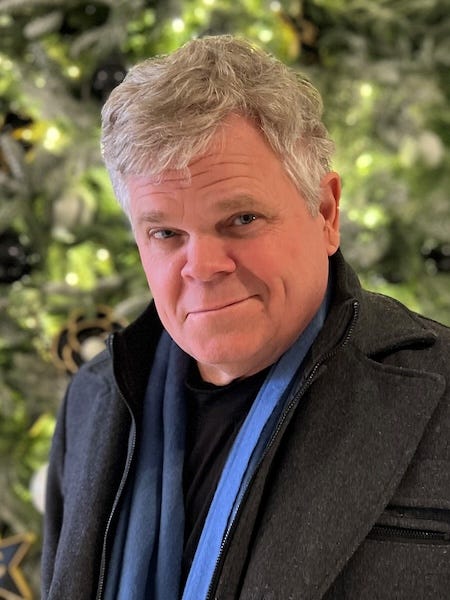
How Black’s Law Dictionary Gets Made: Bryan A. Garner
This is a free preview of a paid episode. To hear more, visit davidlat.substack.comWhat’s the most widely cited legal book in the world? If you guessed Black’s Law Dictionary, then congratulate yourself. Henry Campbell Black published the first edition in 1891, and today it’s a must-have for every lawyer and law student. I even make an appearance in Black’s as the coiner of the term “benchslap,” defined as “a judge’s sharp rebuke of counsel, a litigant, or perhaps another judge.”Who decides whether a term has gained sufficient traction to make it into Black’s? That would be Bryan Garner, the prominent legal lexicographer, lawyer, and legal-writing expert. In the latest episode of the Original Jurisdiction podcast, he explains how he and his colleagues determine whether a neologism has made the cut.This is actually a bonus episode of the podcast, since I posted an episode last week and I’ll have another episode next week. What’s the occasion? Today marks the publication of the twelfth edition of Black’s Law Dictionary. If you’re looking for a graduation or back-to-school gift for a law student, or maybe a Father’s Day gift for a #LawDad in your life, order your copy today.Thanks to Bryan for joining me, and congratulations to him and his team on the latest edition of Black’s Law Dictionary.Show Notes:* Bryan A. Garner bio, LawProse* Black’s Law Dictionary (12th ed.), Amazon* Black’s Law Dictionary: An Interview with Bryan A. Garner, by David Lat for Above the LawPrefer reading to listening? For paid subscribers, a transcript of the entire episode appears below.Sponsored by:NexFirm helps Biglaw attorneys become founding partners. To learn more about how NexFirm can help you launch your firm, call 212-292-1000 or email [email protected].
49:4505/06/2024
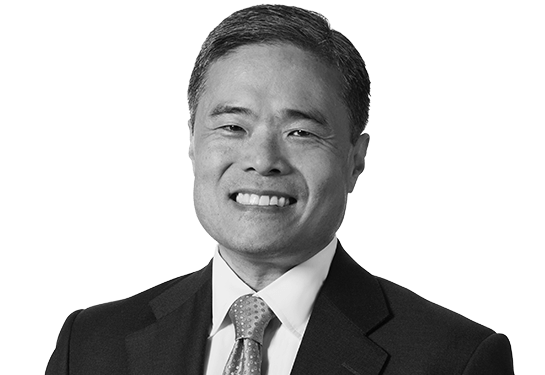
From MIT To M&A: Paul Shim
This is a free preview of a paid episode. To hear more, visit davidlat.substack.comContinuing my M&A miniseries here at Original Jurisdiction, I wanted to welcome another dealmaker to the podcast. And as Asian American and Native Hawaiian/Pacific Islander Heritage Month draws to a close, I wanted to interview another AANHPI attorney, including some discussion of their family’s story and how their identity might have shaped their career.So I was delighted when Paul Shim agreed to join me. A partner at Cleary Gottlieb since 1996, Paul is an established star of the M&A bar, Chambers-ranked in that elite specialty for more than two decades. And we share a few things in common: we’re both the children of Asian immigrants, we both grew up in New Jersey, and we both live in the Garden State today (in neighboring towns, in fact).Paul’s parents immigrated to the United States after the Korean War. Following in the footsteps of his father, who holds a Ph.D. in engineering, Paul studied the subject at MIT, earning a master’s degree in chemical engineering. So how did Paul end up in M&A as opposed to, say, IP law? What skills does he credit for his success in this high-stakes, high-stress practice area? And how has his AAPI background contributed to everything from his choice of firm to his style as a dealmaker?Listen to our conversation for the answers to these questions and more—including one of my favorite responses to the final question I pose to all my guests, a request for career or life advice. We can all benefit from Paul’s wisdom, and I’m so glad and grateful that he was able to join me.Show Notes:Paul Shim bio, Cleary Gottlieb Steen & HamiltonPaul Shim profile, Chambers and PartnersLawyer Limelight: Paul Shim, by LawdragonPrefer reading to listening? For paid subscribers, a transcript of the entire episode appears below.Sponsored by:NexFirm helps Biglaw attorneys become founding partners. To learn more about how NexFirm can help you launch your firm, call 212-292-1000 or email [email protected].
51:1829/05/2024
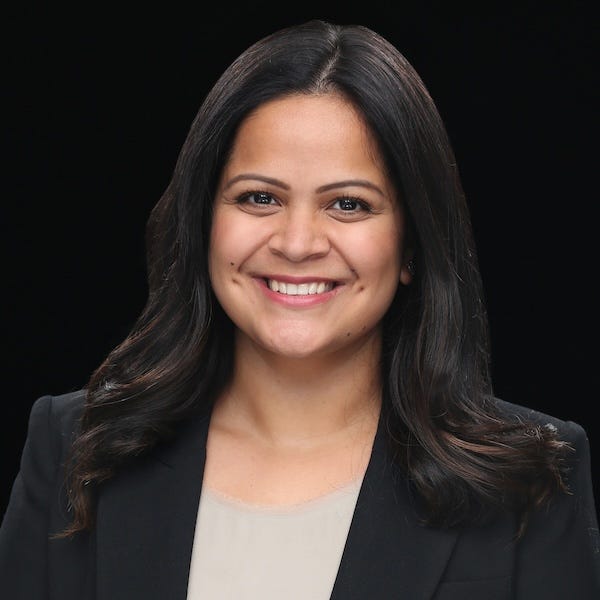
A Dynamic Young Dealmaker: Shanu Bajaj
This is a free preview of a paid episode. To hear more, visit davidlat.substack.comAfter my fascinating conversation with Rodge Cohen of Sullivan & Cromwell, I wanted to interview another transactional lawyer for the Original Jurisdiction podcast. But to mix things up, I wanted to speak with an up-and-coming dealmaker rather than a senior statesperson. And because May is Asian American and Native Hawaiian/Pacific Islander Heritage Month, I was hoping to feature a lawyer of AANHPI descent.Meet Shanu Bajaj, a mergers and acquisitions partner at Davis Polk & Wardwell. Although she hasn’t been a partner for long, Shanu has already been recognized as a star of the M&A bar. In February, she took the #3 spot in the MergerLinks ranking of Top Female M&A lawyers in North America. In March, The American Lawyer named Shanu one of its 2024 Dealmakers of the Year, based on her representation of ExxonMobil in 2023’s largest transaction, the oil giant’s $59.5 billion purchase of Pioneer Natural Resources.What drew Shanu to M&A as a practice area? What are two abilities that she views as especially important for transactional attorneys? How does she describe her personal style as a dealmaker? And what are her tips for making partner in Biglaw, during a time when the rewards are richer—but the odds are longer—than ever?Thanks to Shanu for taking the time to tackle these and many other topics with me, and congratulations to her on the well-deserved recognition of her talents. And with decades of deals ahead of her, she’s just getting warmed up.Show Notes:* Shanu Bajaj bio, Davis Polk & Wardwell* The 2024 Dealmakers of The Year, The American Lawyer* Which M&A Attorneys Drove the Most Business as Deal Leads?, by Patrick Smith for The American LawyerPrefer reading to listening? For paid subscribers, a transcript of the entire episode appears below.Sponsored by:NexFirm helps Biglaw attorneys become founding partners. To learn more about how NexFirm can help you launch your firm, call 212-292-1000 or email [email protected].
28:1615/05/2024
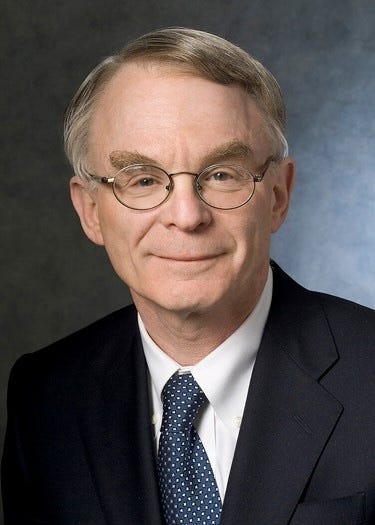
A Titan Of Transactional Practice: H. Rodgin Cohen
This is a free preview of a paid episode. To hear more, visit davidlat.substack.comIt might seem odd to bestow the title of “titan” upon someone once described in the New York Times as standing five-foot-two and weighing 100 pounds wet. But if you know anything about banking M&A and regulatory work, you know that H. Rodgin Cohen, senior chair of Sullivan & Cromwell, is a true giant of the field.For more than 50 years, Rodge Cohen has practiced at the pinnacle of financial-services law. He’s played a role in many historical events over the decades, including New York City’s fiscal crisis, where he helped rescue the city from the brink of bankruptcy in 1975; the Iran hostage crisis, where he counseled American banks that released frozen Iranian funds, part of the deal that led to the 1981 release of the hostages; the 2008 financial crisis, where he represented the buyer or the seller in seemingly every major bank deal; and efforts last year to save Silicon Valley Bank and First Republic Bank.In my latest podcast episode, I interview Rodge about his remarkable career, including his involvement in the aforementioned, headline-making events. But we also cover his childhood in West Virginia, his advice for how to succeed as a deal lawyer, and even his theater and reading recommendations—because despite his demanding practice, Rodge somehow finds the time to see numerous shows and read tons of books. (One recent work we both recommend is Paula Vogel’s Mother Play, which yesterday snagged four Tony Award nominations, including Best New Play.)For my first-ever interview of a corporate or transactional attorney (as opposed to a litigator), I wanted to get a big name—and Rodge Cohen is one of the biggest and best in the business. I guessed that he would be “too big to fail”—and if you listen to our enjoyable and wide-ranging conversation, you’ll see that I was right.Show Notes:* H. Rodgin Cohen bio, Sullivan & Cromwell* H. Rodgin Cohen profile, Chambers and Partners* Trauma Surgeon of Wall Street, by Alan Feuer for the New York Times* The Banking Industry’s Go-to Crisis Adviser, by DealBook for the New York TimesPrefer reading to listening? For paid subscribers, a transcript of the entire episode appears below.Sponsored by:NexFirm helps Biglaw attorneys become founding partners. To learn more about how NexFirm can help you launch your firm, call 212-292-1000 or email [email protected].
40:3701/05/2024
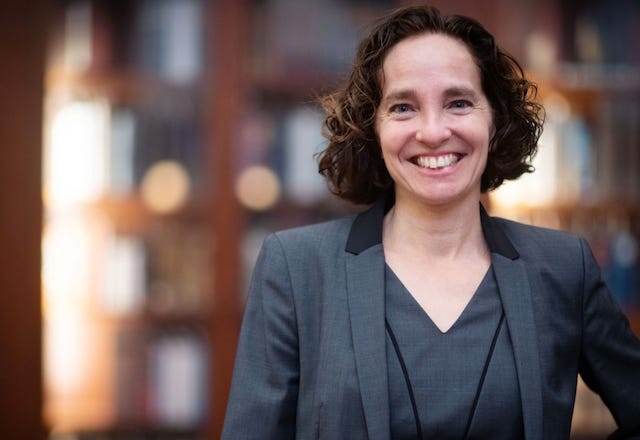
An Exit Interview With A Top Law School’s Dean: Risa Goluboff
This is a free preview of a paid episode. To hear more, visit davidlat.substack.comWould you want to be a law school dean in the year 2024? The once-coveted post seems less fun, given the tension and polarization on university campuses these days, as well as more challenging than ever. One misstep or missed goal—a free-speech controversy gone viral, a fundraising target unmet, a double-digit drop in your school’s U.S. News ranking—and you could be out of a job.Surviving to the end of one’s term as dean is already an accomplishment. Concluding a deanship with multiple achievements unlocked is even more impressive.It’s difficult, but not impossible—as reflected in the record of Dean Risa Goluboff (pronounced REE-suh GOL-u-buff, in case you’re wondering). When her eight-year term as dean of the University of Virginia School of Law ends on June 30, she can take pride in around three dozen new faculty hires, completion of a $400 million capital campaign (more than a year ahead of schedule), and a #4 ranking in U.S. News—the highest in the history of the school.What are some of the secrets of Dean Goluboff’s success? What does she view as the two biggest challenges facing American law schools today? And what is her excellent advice… about how to respond to advice?Learn all this and more by listening to our podcast conversation. Thanks to Dean Goluboff for joining me, and congratulations to her on such a successful deanship.Show Notes:* Risa Goluboff bio, UVA Law School* Dean Risa Goluboff To Step Down in 2024, Concluding History-Making Tenure, by Mary Wood for UVA Law School* Common Law (hosted by Dean Risa Goluboff), Apple PodcastsPrefer reading to listening? For paid subscribers, a transcript of the entire episode appears below.Sponsored by:NexFirm helps Biglaw attorneys become founding partners. To learn more about how NexFirm can help you launch your firm, call 212-292-1000 or email [email protected].
34:5517/04/2024
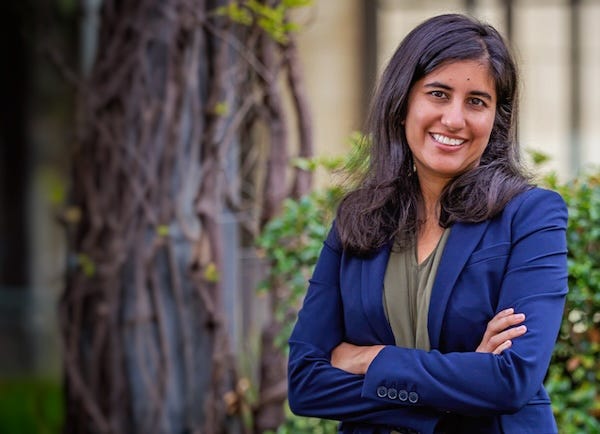
A Rising Star Of The Supreme Court Bar: Easha Anand
This is a free preview of a paid episode. To hear more, visit davidlat.substack.comWelcome to Original Jurisdiction, the latest legal publication by me, David Lat. You can learn more about Original Jurisdiction by reading its About page, and you can email me at [email protected]. This is a reader-supported publication; you can subscribe by clicking here. Thanks!How many Supreme Court advocates wind up with three or more arguments in the same Term? Some of my past podcast guests—like Lisa Blatt, Paul Clement, Neal Katyal, and Kannon Shanmugam—can claim this distinction. But it’s very, very rare (especially if you don’t work—or have never worked—in the Office of the Solicitor General).What’s even more rare is having three oral arguments in your very first Term arguing before the Court. But Easha Anand, the 38-year-old co-director of Stanford Law School’s renowned Supreme Court Litigation Clinic, just pulled off this feat—which is why I was so eager to have her as a guest on the Original Jurisdiction podcast.How did Easha wind up in law school, after a promising journalism career that included stints at the New Orleans Times-Picayune and the Wall Street Journal? How did she wind up with three Supreme Court arguments in the same Term? And what are her three pieces of advice for first-time SCOTUS advocates?Listen to our podcast interview to find out. Congratulations to Easha on the unanimous win in her first argued case, thanks to her for joining me, and good luck to her in what I predict will be a long and successful career arguing at One First Street.Show Notes:* Easha Anand bio, Stanford Law School* Stanford’s Anand Argues Whistleblower Case in High Court Debut, by Lydia Wheeler for Bloomberg Law* Supreme Court Bar’s Breakout Lawyer This Term Started Out in Journalism, by Jimmy Hoover for the National Law JournalPrefer reading to listening? For paid subscribers, a transcript of the entire episode appears below.Sponsored by:NexFirm helps Biglaw attorneys become founding partners. To learn more about how NexFirm can help you launch your firm, call 212-292-1000 or email [email protected].
46:2503/04/2024
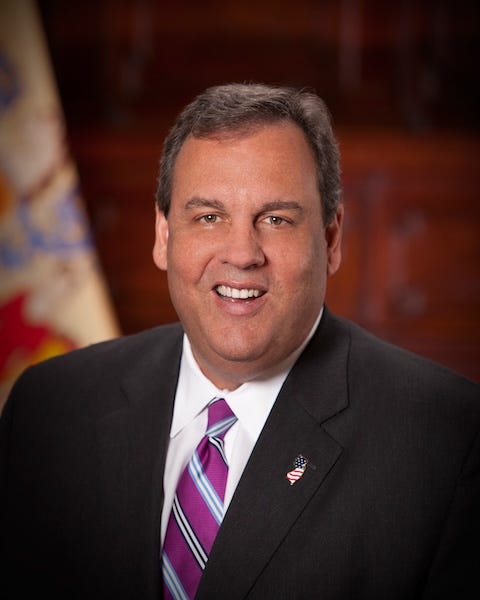
From Prosecutor To Presidential Candidate: Chris Christie
This is a free preview of a paid episode. To hear more, visit davidlat.substack.comWelcome to Original Jurisdiction, the latest legal publication by me, David Lat. You can learn more about Original Jurisdiction by reading its About page, and you can email me at [email protected]. This is a reader-supported publication; you can subscribe by clicking here. Thanks!Chris Christie has had an interesting and eventful career in public life. He served as U.S. Attorney for the District of New Jersey from 2002 to 2008, then as Governor of the Garden State from 2010 to 2018. And he was a candidate for the 2024 Republican presidential nomination, until his January withdrawal from the race.People tend to have strong opinions about Christie. Some respect his outspoken criticism of Donald Trump, which was the centerpiece of his presidential campaign. Others do not—perhaps because they support Trump, or perhaps because they can’t forgive Christie for having been for Trump before he was against him. (In some ways Christie is his own harshest critic for this, admitting in his speech withdrawing from the race that he endorsed Trump because he put personal ambition over what he knew was right.)I’m not a neutral observer when it comes to Chris Christie. I worked for him as an assistant U.S. attorney from 2003 to 2006, and I like and respect him a great deal. As we discuss at the start of this podcast episode, I’m especially grateful for how he dealt with me in the wake of the scandal over my very first blog, Underneath Their Robes. But that didn’t stop me from asking him difficult questions on the podcast, including his biggest regrets—yes, he talks about Bridgegate—and whom he might vote for in the presidential election. We also review his legal career, including his advice for law students and his three biggest cases as U.S. Attorney.Congratulations to Governor Christie on his latest book—What Would Reagan Do? Life Lessons from the Last Great President, which we discuss on the podcast—and thanks to him for both his past kindness and willingness to join me today.Show Notes:* Chris Christie bio, Christie 55 Solutions* What Would Reagan Do? Life Lessons from the Last Great President, AmazonPrefer reading to listening? For paid subscribers, a transcript of the entire episode appears below.Sponsored by:NexFirm helps Biglaw attorneys become founding partners. To learn more about how NexFirm can help you launch your firm, call 212-292-1000 or email [email protected].
55:3920/03/2024
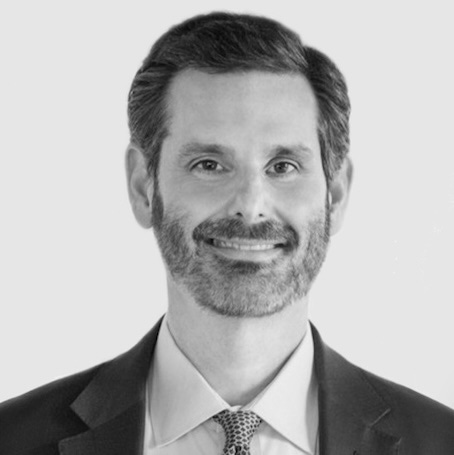
Designing The Law Firm Of The Future: David Elsberg
This is a free preview of a paid episode. To hear more, visit davidlat.substack.comWould you leave a thriving law firm to strike out on your own? Many risk-averse lawyers would not, but David Elsberg has done so—twice.In 2018, David left Quinn Emanuel to launch Selendy Gay, later Selendy Gay Elsberg—which today is one of the nation’s top litigation boutiques. Then last month, he made the news again with the launch of Elsberg Baker & Maruri, which he co-founded with former colleagues from both Quinn Emanuel and Selendy Gay.David is one of the country’s leading commercial litigators—according to Chambers, Law360, Lawdragon, and Benchmark Litigation—and in this new episode of the Original Jurisdiction podcast, we discussed his career as a trial lawyer. But I was just as interested in getting his thoughts on two topics that have been on my mind a fair amount lately.First, why are so many great lawyers, especially litigators, leaving Biglaw to launch boutiques? And second, if you could design a law firm from the ground up, how would you structure it? David and his new partners have put a lot of thought into institutional design—and their firm bucks Biglaw trends in several different ways, as he explained to me in our conversation.Congratulations and good luck to David and his colleagues on the launch of their new firm. Based on his track record as both a litigator and a founder, I’m predicting great success for David and Elsberg Baker & Maruri.Show Notes:* David Elsberg bio, Elsberg Baker & Maruri PLLC* Wall Street Litigation Firm Starts With Selendy Gay Recruits, by Tatyana Monnay for Bloomberg Law* Selendy Gay Founder, Quinn Emanuel Partners To Form New Law Firm, by Sara Merken for Reuters* Selendy Gay’s David Elsberg, Quinn Emanuel Partners To Launch New Litigation Boutique, by Dan Roe for the New York Law JournalPrefer reading to listening? For paid subscribers, a transcript of the entire episode appears below.Sponsored by:NexFirm helps Biglaw attorneys become founding partners. To learn more about how NexFirm can help you launch your firm, call 212-292-1000 or email [email protected].
42:2706/03/2024
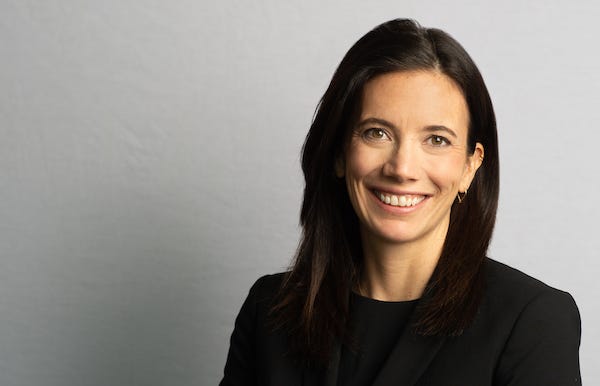
Holding Trump Accountable: Shawn Crowley
This is a free preview of a paid episode. To hear more, visit davidlat.substack.comWelcome to Original Jurisdiction, the latest legal publication by me, David Lat. You can learn more about Original Jurisdiction by reading its About page, and you can email me at [email protected]. This is a reader-supported publication; you can subscribe by clicking here. Thanks!What does it feel like to call out Donald Trump—with Trump sitting five feet away?Not many lawyers have had that experience, but Shawn Crowley has. Along with Roberta Kaplan, a previous guest on this podcast, Crowley represented writer E. Jean Carroll in her defamation lawsuit against former president Donald Trump. Delivering a closing statement that the New York Times called “an animated and passionate rebuttal,” Crowley called on the jury to “make him pay enough so that he will stop” defaming Carroll—which the jury did, issuing an $83.3 million verdict.The 40-year-old Crowley is one of the country’s leading trial lawyers. During her six-plus years as an assistant U.S. attorney in the Southern District of New York, she worked on several headline-making cases—including the trial and conviction of the so-called “Chelsea Bomber,” Ahmad Khan Rahimi, for perpetrating a terrorist attack in the Chelsea neighborhood of Manhattan in October 2016.You’ll be hearing a lot more about Shawn for years to come, so get to know her through this wide-ranging podcast interview. And congrats again to her and her colleagues at Kaplan Hecker & Fink on an epic win.Show Notes:* Shawn G. Crowley bio, Kaplan Hecker & Fink LLP* Jury Orders Trump to Pay Carroll $83.3 Million After Years of Insults, by Benjamin Weiser, Jonah E. Bromwich, Maria Cramer, and Kate Christobek, for the New York Times* E. Jean Carroll attorney: Trump verdict proves ‘your lies’ catch up to you, All In With Chris HayesPrefer reading to listening? For paid subscribers, a transcript of the entire episode appears below.Sponsored by:NexFirm helps Biglaw attorneys become founding partners. To learn more about how NexFirm can help you launch your firm, call 212-292-1000 or email [email protected].
48:1021/02/2024
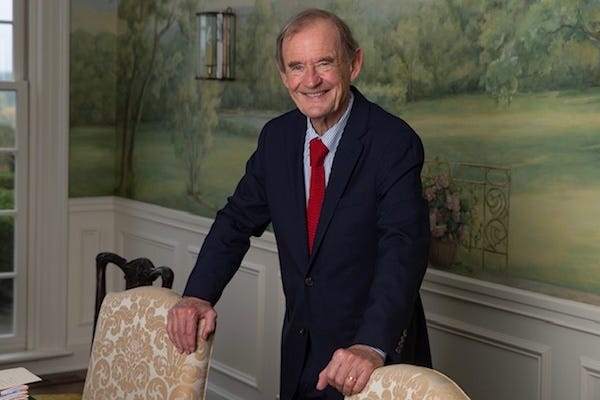
No Regrets: An Interview With David Boies
This is a free preview of a paid episode. To hear more, visit davidlat.substack.comWelcome to Original Jurisdiction, the latest legal publication by me, David Lat. You can learn more about Original Jurisdiction by reading its About page, and you can email me at [email protected]. This is a reader-supported publication; you can subscribe by clicking here. Thanks!In part one of my two-part interview of David Boies, I asked the famed trial lawyer to do what he does best: analyze cases and controversies. In part two, we turned to a topic that’s closer to home: David Boies.My husband Zach tells me that I’m too soft as an interviewer. Trying to prove him wrong, I asked David some tough questions about sensitive subjects. Do you rue the day you met Elizabeth Holmes? What do you regret about your work for Harvey Weinstein? Why doesn’t Boies Schiller Flexner have an anti-nepotism policy? What will be in your Times obituary?I’ve interviewed David on multiple occasions over the years, and we’ve never had any tense moments—until now. If you usually read my podcast interviews, you might want to listen to this one.David fielded my aggressive questions thoughtfully, eloquently, and graciously—which is exactly what I expected of this legal lion. But listen for yourself and reach your own verdict on David Boies.Show Notes:* David Boies Pleads Not Guilty, by James B. Stewart for the New York Times* The Bad, Good Lawyer, by Andrew Rice for New York MagazinePrefer reading to listening? For paid subscribers, a transcript of the entire episode appears below.Sponsored by:NexFirm helps Biglaw attorneys become founding partners. To learn more about how NexFirm can help you launch your firm, call 212-292-1000 or email [email protected].
54:2307/02/2024
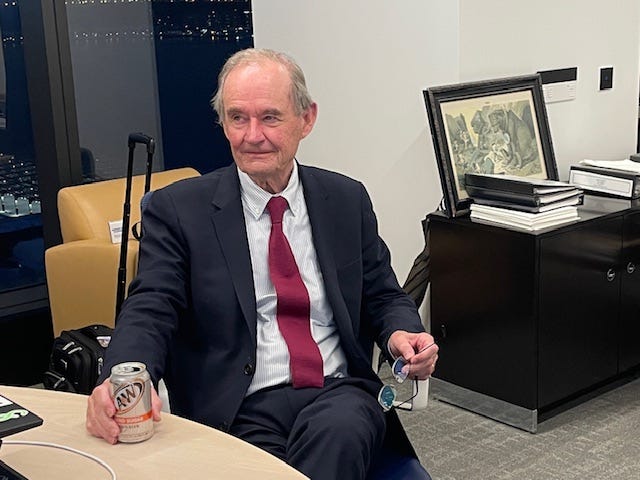
Anti-Trump Lawsuits Are 'Greatly Mistaken': An Interview With David Boies
I’ve come full circle. A little more than three years ago, I launched Original Jurisdiction with an interview of superstar litigator David Boies, 82, one of the most famous living American lawyers. Now I’m speaking with him again, this time for a special two-part podcast interview.In today’s interview, part one of two, David discusses current events. Most notably, given his representation of Al Gore in Bush v. Gore, he’s critical of attempts to keep Donald Trump off the ballot based on Section Three of the Fourteenth Amendment, from both consequentialist and constitutional perspectives. He’s also not a fan of most of the criminal and civil cases targeting the former president.This is just part one; in part two, David and I will focus on his life and career. And fear not, dear listeners: I will “go there” and ask about Harvey Weinstein, Elizabeth Holmes, the near-implosion of Boies Schiller Flexner, and other sensitive subjects.In the meantime, enjoy part one of my conversation with David Boies. Whether or not you agree with him, he always has interesting things to say.Sponsored by:NexFirm helps Biglaw attorneys become founding partners. To learn more about how NexFirm can help you launch your firm, call 212-292-1000 or email [email protected]. This is a public episode. If you’d like to discuss this with other subscribers or get access to bonus episodes, visit davidlat.substack.com/subscribe
50:5924/01/2024
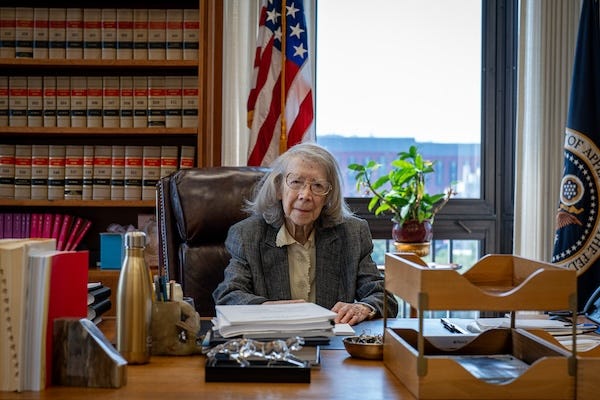
'Integrity': An Interview With Judge Pauline Newman
This is a free preview of a paid episode. To hear more, visit davidlat.substack.comWelcome to Original Jurisdiction, the latest legal publication by me, David Lat. You can learn more about Original Jurisdiction by reading its About page, and you can email me at [email protected]. This is a reader-supported publication; you can subscribe by clicking here. Thanks!For the past 10 months, the legal world has been transfixed by the Pauline Newman saga. At 96, Judge Pauline Newman is the nation’s oldest active federal judge. Last March, her longtime colleague, Chief Judge Kimberly Moore, initiated an effort to remove Judge Newman from the Federal Circuit.The complaint against Judge Newman was initially based on her supposed “cognitive decline” and “paranoid and bizarre behavior,” but it later morphed to focus on her unwillingness to cooperate with Chief Judge Moore’s investigation. Judge Newman said she’d be happy to cooperate with an investigation—as long as it’s conducted by a neutral party, namely, the judicial council of another circuit.As I have written repeatedly, I agree with Judge Newman on her due-process argument. It’s routine for circuit judges to transfer an investigation of a fellow circuit judge—as opposed to, say, a district, magistrate, or bankruptcy judge—to another circuit. And there are some interpersonal issues between Chief Judge Moore and Judge Newman, which I might write about in the future, that make it completely inappropriate for Moore to be leading this investigation.I was agnostic, however, on Judge Newman’s mental capacity. I read, along with everyone else, the gossipy details in Chief Judge Moore’s various reports that made Newman sound, well, totally out of it. But I also read and heard accounts from other sources—such as journalists who visited Newman in chambers, and lawyers who saw her speak at conferences—stating that she’s just fine.On January 4, I met with Judge Newman and her clerks in chambers, for about four hours. Last Friday, I interviewed Judge Newman on my podcast, for another hour. I’m now of the view that she’s completely lucid and sane—and I have reason to disbelieve or at least question much of what I’ve read in the takedowns of her. (I’m hoping to publish a deep dive into the drama at the Federal Circuit, which is actually quite fascinating—and if you have information or insight to share, please email me.)But you don’t have to take my word for it when it comes to Judge Newman’s condition. Listen to our almost hour-long podcast conversation—or watch video clips of the judge that I’ll be posting later this week, at her request—and judge for yourself.Show Notes:* Pauline Newman bio, Wikipedia* Colleagues want a 95-year-old judge to retire. She’s suing them instead, by Rachel Weiner for the Washington Post* Fed. Circuit’s Newman, 96, Fights Colleagues From Sideline, by Michael Shapiro for Bloomberg LawPrefer reading to listening? For paid subscribers, a transcript of the entire episode appears below.Sponsored by:NexFirm helps Biglaw attorneys become founding partners. To learn more about how NexFirm can help you launch your firm, call 212-292-1000 or email [email protected].
51:3817/01/2024
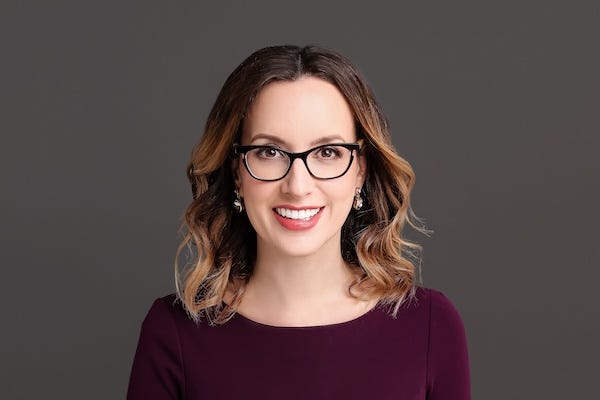
2023 Year In Review And 2024 Predictions, With Sarah Isgur
This is a free preview of a paid episode. To hear more, visit davidlat.substack.comWelcome to Original Jurisdiction, the latest legal publication by me, David Lat. You can learn more about Original Jurisdiction by reading its About page, and you can email me at [email protected]. This is a reader-supported publication; you can subscribe by clicking here. Thanks!Belated Christmas greetings (if applicable). We spent the holiday with my parents, who hosted a Christmas party on Saturday, and we took a family photo in front of their lovely Christmas tree. I also took the weekend off from Judicial Notice, but I should be back this coming weekend with a double edition (so please feel free to send me nominations, since I haven’t been as diligent as usual about following the news).I did not take the week off from podcasting. Instead, I have a special treat for you: a 2023 year in review—including picks for Lawyer of the Year, Judge of the Year, Law Firm of the Year, and more—plus predictions for 2024 about the Supreme Court, the Trump criminal cases, and free speech and First Amendment law.I’m pleased to be joined for this adventure by a very special guest: one of the nation’s most insightful and fair-minded legal analysts, Sarah Isgur. She’s probably most well-known to Original Jurisdiction readers as the host of the excellent Advisory Opinions podcast, which I frequently cite in these pages, and she’s also a senior editor at The Dispatch and a contributor at ABC News. She clerked for Judge Edith Jones of the Fifth Circuit and graduated from Harvard Law School.It was an eventful year in legal news, so there’s tons to cover—let’s get to it. Thanks so much to Sarah for joining me for this rollicking review of the year that was.Show Notes:* Sarah Isgur author page, The Dispatch* Advisory Opinions, The Dispatch* Advisory Opinions, Apple PodcastsPrefer reading to listening? For paid subscribers, a transcript of the entire episode appears below.Sponsored by:NexFirm helps Biglaw attorneys become founding partners. To learn more about how NexFirm can help you launch your firm, call 212-292-1000 or email [email protected].
01:06:5527/12/2023
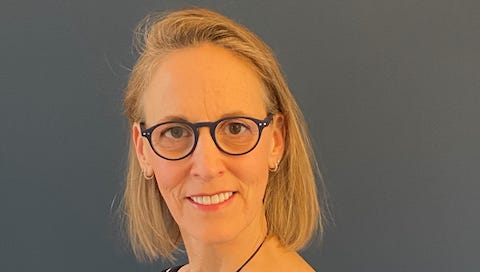
The Rise Of Pro Bono Counsel: An Interview With Jackie Haberfeld
This is a free preview of a paid episode. To hear more, visit davidlat.substack.comWelcome to Original Jurisdiction, the latest legal publication by me, David Lat. You can learn more about Original Jurisdiction by reading its About page, and you can email me at [email protected]. This is a reader-supported publication; you can subscribe by clicking here. Thanks!If you’re looking for a more meaningful New Year’s resolution than losing five pounds, I have a suggestion for you: do more pro bono. To make it concrete, maybe even set a numerical goal for yourself, like 50 hours.Over the years, as Biglaw firms have grown in size and profitability, many of them have invested more in pro bono. As a result, there now exists a job that really didn’t exist when I graduated law school: “pro bono counsel.” These lawyers oversee the pro bono programs of Biglaw firms, which means they get to work full-time on pro bono, backed by Biglaw resources (and earning Biglaw salaries). Not surprisingly, these roles are some of the most highly coveted jobs not just in Biglaw, but the entire legal profession.As part of my continuing focus during the holiday season on pro bono and public interest work, I decided to interview a Biglaw pro bono counsel. And as is my wont when picking podcast guests, I decided to go straight to the top: my latest guest is Jacqueline Haberfeld, global program director of pro bono at Kirkland & Ellis, the world’s #1 law firm in terms of both revenue and profits per partner.In our wide-ranging conversation, Jackie and I discussed her path to becoming pro bono counsel, some of her most meaningful projects, how firms handle political and reputational concerns related to pro bono work, and how to get a job as pro bono counsel today. I hope you enjoy this interview—and I hope that it inspires you to do more pro bono work in the coming year.Show Notes:* Pro Bono | Social Commitment, Kirkland & Ellis* Notable Women in Law 2021: Jacqueline Haberfeld, Crain’s New York Business* Innovation: Jacqueline Haberfeld, pro bono counsel, Kirkland & Ellis, New York Law JournalPrefer reading to listening? For paid subscribers, a transcript of the entire episode appears below.Sponsored by:NexFirm helps Biglaw attorneys become founding partners. To learn more about how NexFirm can help you launch your firm, call 212-292-1000 or email [email protected].
37:3213/12/2023
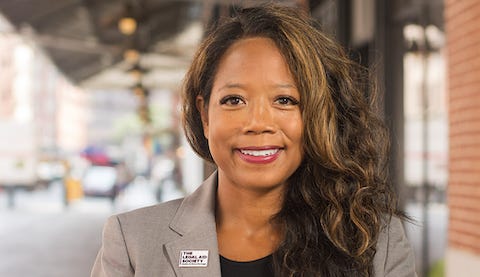
'Always Be Courageous': An Interview With Twyla Carter
This is a free preview of a paid episode. To hear more, visit davidlat.substack.comWelcome to Original Jurisdiction, the latest legal publication by me, David Lat. You can learn more about Original Jurisdiction by reading its About page, and you can email me at [email protected]. This is a reader-supported publication; you can subscribe by clicking here. Thanks!With the holiday season upon us and the end of the year not far behind, now is a time to be thankful for our blessings—and to keep in mind those who are less fortunate. Toward that end, last week I highlighted the new class of Skadden Fellows, who will spend the next two years meeting the legal needs of people living in poverty.And this week, I’m welcoming to the podcast someone who has devoted her entire legal career to serving the poor: Twyla Carter, attorney-in-chief and chief executive officer of The Legal Aid Society (LAS). Before taking the helm at LAS, Twyla worked as a public defender and at the ACLU, making a name for herself as a leading advocate of bail reform.In our interview, we explored Twyla’s impressive career, which listeners aspiring to enter the public-interest world should appreciate. But I also posed tough questions to Twyla about some of LAS’s more controversial projects, including its work on New York City’s “right to shelter” mandate, which LAS is defending in court amid claims that it is unworkable, and whether criminal-justice reform, which Twyla has worked on for years, has gone too far. So please do check out this episode—and consider donating or volunteering to support the Society’s important work.Show Notes:* Twyla Carter bio, The Legal Aid Society* Leading Bail Reform Advocate to Take Reins as Legal Aid’s First Black Woman and Asian American to Serve as CEO, by Andrew Denney for the New York Law Journal* Legal Aid Society Appoints Twyla Carter Attorney-in-Chief, CEO, Bloomberg LawPrefer reading to listening? For paid subscribers, a transcript of the entire episode appears below.Sponsored by:NexFirm helps Biglaw attorneys become founding partners. To learn more about how NexFirm can help you launch your firm, call 212-292-1000 or email [email protected].
37:2729/11/2023
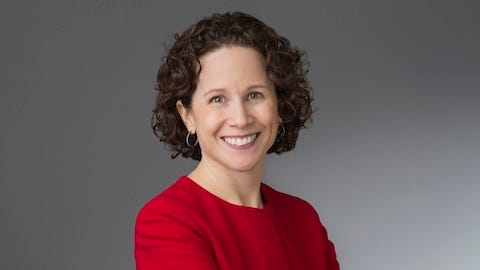
No Accident: An Interview With Karen Dunn
This is a free preview of a paid episode. To hear more, visit davidlat.substack.comWelcome to Original Jurisdiction, the latest legal publication by me, David Lat. You can learn more about Original Jurisdiction by reading its About page, and you can email me at [email protected]. This is a reader-supported publication; you can subscribe by clicking here. Thanks!If you’re looking for something to watch as the weather turns colder and we spend more time indoors, allow me to suggest HBO’s No Accident. This documentary, directed by Kristi Jacobson and produced by Michelle Carney and Alexandra Moss, tells the story of Sines v. Kessler, the landmark civil-rights trial against the white supremacists behind the notorious “Unite the Right” rally held in Charlottesville, Virginia, in August 2017.One lead lawyer for the plaintiffs, and as such a star of No Accident, is Karen Dunn, one of the nation’s top trial lawyers. I try to make my guests timely, and Karen is a great guest for that and two other reasons. First, last month she became co-chair of litigation at Paul, Weiss—a firm that has been making lots of news itself, thanks to its aggressive hiring of lateral partners. Second, ‘tis the season for presidential debates—a topic Karen knows well, having served as debate coach to President Barack Obama, in his successful reelection effort, and Secretary Hillary Clinton.If you’re interested in either trial practice or the intersection of law and politics, then you’ll enjoy this episode. I’m grateful to Karen for joining me, as well as for all she does to advance equal justice in our country.Show Notes:* Karen L. Dunn bio, Paul, Weiss, Rifkind, Wharton & Garrison LLP* No Accident, HBO* Paul Weiss Looks to D.C. to Add Leaders in Litigation Practice, by Patrick Smith for the American Lawyer* Boies Schiller Expands In D.C. By Hiring Young Legal Superstars, by David Lat for Above the LawPrefer reading to listening? For paid subscribers, a transcript of the entire episode appears below.Sponsored by:NexFirm helps Biglaw attorneys become founding partners. To learn more about how NexFirm can help you launch your firm, call 212-292-1000 or email [email protected].
49:5015/11/2023
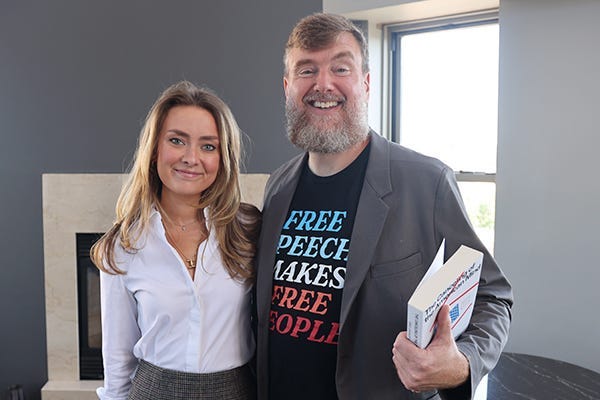
The Canceling Of The American Mind: An Interview With Greg Lukianoff
This is a free preview of a paid episode. To hear more, visit davidlat.substack.comWhen I wrote an op-ed for the Boston Globe titled Big Law’s Cancel Culture, I got an earful from folks who complained about the use of the term “cancel culture” (which was picked by the Globe’s copy editors, not by me). There are many folks who argue the “cancel culture” doesn’t exist or, if it does, it’s greatly exaggerated.While I have concerns about the term “cancel culture”—it carries baggage, causing some people to stop listening—I still do use it. My approach to language is more descriptive than prescriptive, so if a term or phrase is useful, it’s generally okay by me. When you say “cancel culture,” people know what you’re talking about, and I don’t know of an alternative term that refers to exactly the same phenomenon.Cancel-culture denial tends to be more common on the left. I wonder, then, whether some progressives might be more willing to acknowledge it now that some on the left are arguably getting “canceled” for expressing pro-Hamas, pro-Palestine, or anti-Israel views. (Please note my use of the term “arguably”; I’m not here to debate the merits of these controversies, which are very fact-specific, and I condemn anything that crosses the line into threats, harassment, and other speech not protected by the First Amendment.)Indeed, cancellation comes from all sides—a major theme of The Canceling of the American Mind, an excellent new book by Greg Lukianoff, president and CEO of the Foundation for Individual Rights and Expression (FIRE), and Rikki Schlott, a columnist for the New York Post. Lukianoff is left of center and Schlott is right of center, but they agree that cancel culture is real—as they demonstrate in their book, before offering possible responses.If you’re concerned about free speech, cancel culture, and related issues, then you will enjoy my interview of Greg Lukianoff—one of the most eloquent, steadfast defenders of the First Amendment and free-speech values, for more than 20 years. Thanks to Greg for speaking with me, for writing this book, and for defending the freedom of speech and thought in our great nation.Show Notes:* Greg Lukianoff bio, The Foundation for Individual Rights and Expression* The Canceling of the American Mind: Cancel Culture Undermines Trust and Threatens Us All―But There Is a Solution, by Greg Lukianoff and Rikki Schlott* Sick of Cancel Culture? One Man Has a Surprising Solution, by Evan Mandery for PoliticoPrefer reading to listening? For paid subscribers, a transcript of the entire episode appears below.Sponsored by:NexFirm helps Biglaw attorneys become founding partners. To learn more about how NexFirm can help you launch your firm, call 212-292-1000 or email [email protected].
45:1101/11/2023
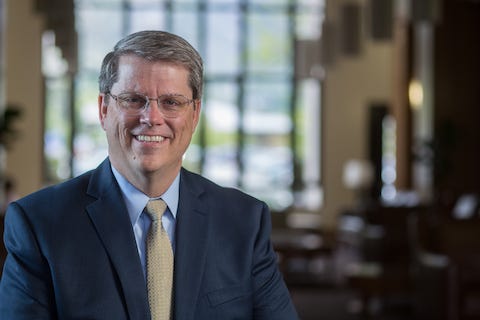
Confessions Of A Law School Dean: An Interview With Gordon Smith
This is a free preview of a paid episode. To hear more, visit davidlat.substack.comWelcome to Original Jurisdiction, the latest legal publication by me, David Lat. You can learn more about Original Jurisdiction by reading its About page, and you can email me at [email protected]. This is a reader-supported publication; you can subscribe by clicking on the button below. Thanks!As the new academic year gets underway, I’ve been having a law-school module of sorts here on the Original Jurisdiction podcast. After interviewing Professor Amy Chua of Yale and Professor Brian Fitzpatrick of Vanderbilt about current issues facing legal academia, I thought it might be useful to get a deanly—actually, the proper word is “decanal”—perspective on these topics. My latest guest is Professor D. Gordon Smith, who recently completed his service as dean of the J. Reuben Clark Law School at Brigham Young University, aka BYU Law. I’ve admired his work for years, dating back to when we both started legal blogs in 2004—Underneath Their Robes for me, and The Conglomerate for him—and I was pleased to see him become dean of BYU Law in 2016. During his seven years as dean, he was an innovator in legal education—and this was reflected in BYU Law’s dramatic rise in the U.S. News rankings, from #46 when he took over to #22 today.In our conversation, Professor Smith discussed BYU Law’s unique mission as a school “[f]ounded, supported, and guided by The Church of Jesus Christ of Latter-day Saints,” as well as changes he instituted that contributed to its climb in the rankings. But we also covered broader topics like the bar exam and lawyer licensure, professional development, and our nation’s access-to-justice crisis—so this episode will interest not just legal academics, but anyone who cares about law and the legal profession. I’m grateful to Professor Smith for his time and insight, as well as his contributions to both legal education and the profession more generally.Show Notes:* D. Gordon Smith bio, BYU Law School* Our Mission Statement, BYU Law* BYU Law Dean to Step Down at End of Academic Year, BYU Law School* 6 Questions With BYU Law School Dean D. Gordon Smith, by Rose Krebs for Law360Prefer reading to listening? For paid subscribers, a transcript of the entire episode appears below.Sponsored by:NexFirm helps Biglaw attorneys become founding partners. To learn more about how NexFirm can help you launch your firm, call 212-292-1000 or email [email protected].
46:4118/10/2023
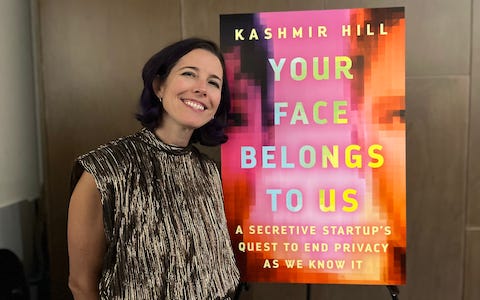
Your Face Belongs To Us: An Interview With Kashmir Hill
This is a free preview of a paid episode. To hear more, visit davidlat.substack.comWelcome to Original Jurisdiction, the latest legal publication by me, David Lat. You can learn more about Original Jurisdiction by reading its About page, and you can email me at [email protected]. This is a reader-supported publication; you can subscribe by clicking on the button below. Thanks!Looking back over my time at Above the Law, one of the things I’m most proud of is the talent I discovered. My first full-time hire was Elie Mystal, now the justice correspondent on The Nation, frequent television commentator, and author of the bestselling Allow Me to Retort: A Black Guy’s Guide to the Constitution. My second full-time hire was Kashmir Hill, now at the New York Times, who has a book of her own: Your Face Belongs to Us: A Secretive Startup's Quest to End Privacy as We Know It, published last month by Penguin Random House.Your Face Belongs to Us is about the future of facial-recognition technology, an incredibly powerful tool with great promise and peril. The book is a story about privacy and technology, but it’s also a story about the law and legal issues. The future of facial recognition will be shaped profoundly by legal responses. Can we craft laws that allow society to take advantage of the benefits of this technology while at the same time preserving the privacy that it threatens?In my podcast interview with Kashmir, I pushed back on some of the more dystopian elements of Your Face Belongs to Us. I pressed her on whether she might be underestimating the positive aspects of facial-recognition technology, such as its use by law enforcement (such as tracking down January 6 rioters for arrest and prosecution). We analyzed the crucial role played by lawyers in the story of Clearview AI, the mysterious startup at the heart of the book; they include Paul Clement, Floyd Abrams, Federal Trade Commissioner Alvaro Bedoya, and attorneys at the American Civil Liberties Union (ACLU). And we explored stories of facial-recognition technology gone wrong, including innocent people arrested for crimes they didn’t commit because of false positives on Clearview and similar software.Thanks to Kashmir for joining me, as well as for her important work exploring the legal and policy aspects of a transformative but troubling technology.Show Notes:* Kashmir Hill bio, author website* Kashmir Hill archives, The New York Times* Your Face Belongs to Us: A Secretive Startup's Quest to End Privacy as We Know It, AmazonPrefer reading to listening? For paid subscribers, a transcript of the entire episode appears below.Sponsored by:NexFirm helps Biglaw attorneys become founding partners. To learn more about how NexFirm can help you launch your firm, call 212-292-1000 or email [email protected].
34:4904/10/2023
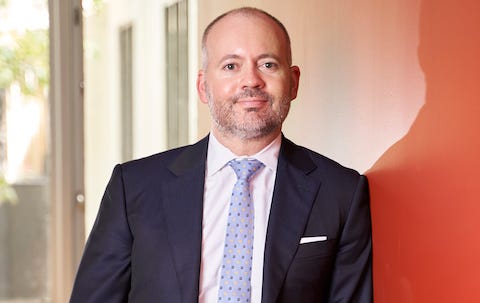
From Class Actions To Affirmative Action: An Interview With Brian Fitzpatrick
This is a free preview of a paid episode. To hear more, visit davidlat.substack.comWelcome to Original Jurisdiction, the latest legal publication by me, David Lat. You can learn more about Original Jurisdiction by reading its About page, and you can email me at [email protected]. This is a reader-supported publication; you can subscribe by clicking on the button below. Thanks!It’s great to have friends that you can have heated discussions with about controversial topics, without worrying about whether it will affect your friendship. For me, one of those friends is Brian Fitzpatrick. We’ve known each other for almost a quarter-century, during which we’ve argued about more sensitive subjects than either of us can remember, and I’ve learned so much from our spirited debates.This might be because Brian is no slouch. He earned a B.S. in chemical engineering from Notre Dame, summa cum laude, and graduated from Harvard Law School, first in his class. He then clerked for Judge Diarmuid O’Scannlain of the Ninth Circuit, which is where we first met, followed by the late Justice Antonin Scalia. In 2007, Brian joined the faculty of Vanderbilt Law School, where he holds the Milton Underwood Chair in Free Enterprise. In 2019, the University of Chicago Press published his book, The Conservative Case for Class Actions, which won praise from across the ideological spectrum.In our interview, Brian and I touched on topics that are of great interest to readers of Original Jurisdiction. We covered attorneys’ fees, which Brian is a leading expert on, followed by affirmative action in higher education and free speech in the legal academy. Brian is brilliant and bracingly candid, so I hope you enjoy this discussion—as I know you will.Show Notes:* Brian Fitzpatrick bio, Vanderbilt Law School* Fitzpatrick Matrix Adopted for Setting D.C. Attorneys’ Fees Awards, by Bernie Pazanowski for Bloomberg Law* The Conservative Case for Class Actions, official websitePrefer reading to listening? For paid subscribers, a transcript of the entire episode appears below.Sponsored by:NexFirm helps Biglaw attorneys become founding partners. To learn more about how NexFirm can help you launch your firm, call 212-292-1000 or email [email protected].
46:3520/09/2023
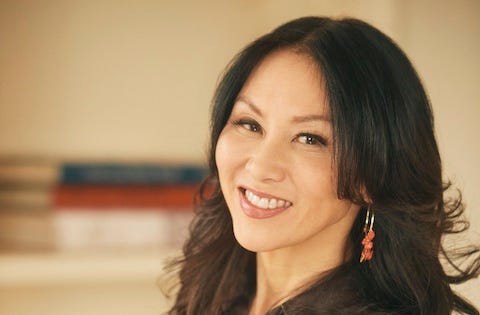
Tiger Mom Turned Novelist: An Interview With Amy Chua
This is a free preview of a paid episode. To hear more, visit davidlat.substack.comWelcome to Original Jurisdiction, the latest legal publication by me, David Lat. You can learn more about Original Jurisdiction by reading its About page, and you can email me at [email protected]. This is a reader-supported publication; you can subscribe by clicking on the button below. Thanks!As a new academic year gets underway, many of us are wondering: what law-school scandals lie in store? To discuss current hot-button issues facing legal academia, including free speech, intellectual diversity, and affirmative action, I could think of no better podcast guest than Professor Amy Chua. As a longtime member of the Yale Law School faculty, she’s had a front-row seat to—and personal involvement in—several of YLS’s recent controversies. Yale Law insanity aside, there was another reason I wanted to interview Amy, the author of two New York Times bestsellers—most notably, her 2011 memoir, Battle Hymn of the Tiger Mother (2011). This month, Minotaur Books, Macmillan’s mystery- and thriller-focused imprint, is publishing her first novel, The Golden Gate. I devoured it in two days, and I can attest that it’s a great read—a historically rich page-turner that will teach you about California history while keeping you on the edge of your seat.One other thing: loyal listeners might notice this episode is going up on Thursday rather than its usual day of Wednesday. There’s a good reason for that: my sound engineer Tommy Harron and his wife just welcomed their second child to the world. Congratulations to them on this great news.Show Notes:* Amy Chua bio, Yale Law School* The Golden Gate, Amazon* All About Amy (Chua), The Law Professor We Can't Stop Talking About, by David Lat for Original JurisdictionPrefer reading to listening? For paid subscribers, a transcript of the entire episode appears below.Sponsored by:NexFirm helps Biglaw attorneys become founding partners. To learn more about how NexFirm can help you launch your firm, call 212-292-1000 or email [email protected].
43:1607/09/2023
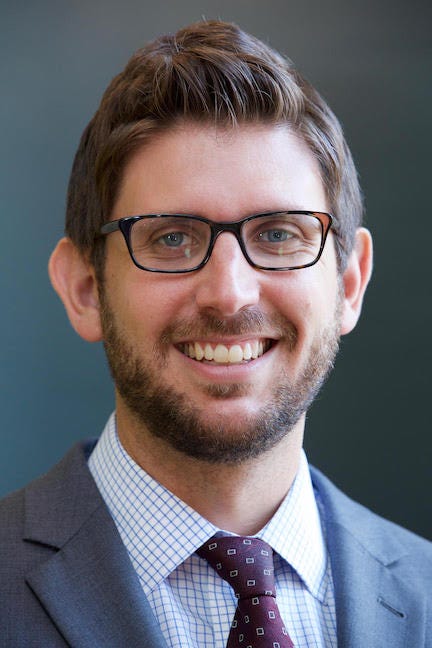
Fix The Court: An Interview With Gabe Roth
This is a free preview of a paid episode. To hear more, visit davidlat.substack.comWelcome to Original Jurisdiction, the latest legal publication by me, David Lat. You can learn more about Original Jurisdiction by reading its About page, and you can email me at [email protected]. This is a reader-supported publication; you can subscribe by clicking on the button below. Thanks!Are you having a hard time keeping track of all the Supreme Court ethics episodes? You’re not alone—and some of us have to do it as a job.With the Court out of session and the justices scattered to the four winds, now is a good time to take stock of the controversies, before the new Term gets underway. And I can think of few better authorities on SCOTUS ethics than Gabe Roth of Fix the Court (FTC), who has spent the better part of the last decade focused on this subject—well before it was en vogue. Indeed, Roth seems to get quoted in practically every article about alleged ethical lapses of the justices.But Roth and FTC have their critics. From the right, the Wall Street Journal editorial page recently took Fix the Court to task for screwing up its own financial disclosures, despite constantly harping on the justices’ mistakes in this area. The WSJ castigated FTC as a “left-wing outfit” trying to “weaponize ethics and disclosures” in order to “diminish conservative influence on the Court.” Meanwhile, some on the left complain that the organization’s “fixes” or proposed reforms simply aren’t bold enough to deal with what progressives view as the systemic rot permeating One First Street.In our interview, I pressed Roth on why Fix the Court is viewed as left-wing, despite claiming to be nonpartisan, and on whether we are unfairly judging the justices based on new standards. And then we took a deep dive into all the recent—and some not-so-recent—SCOTUS ethics controversies. If you’ve ever wanted an expert to review all nine justices and score them on their “scandals,” then this episode is for you. Thanks to Gabe for his time, insight, and candor.Show Notes:* Gabe Roth bio, Fix the Court* The Fixes, Fix the Court* Complaint filed over US judge's ‘strange’ Southwest religious liberty training order, by Nate Raymond for ReutersPrefer reading to listening? For paid subscribers, a transcript of the entire episode appears below.Sponsored by:NexFirm helps Biglaw attorneys become founding partners. To learn more about how NexFirm can help you launch your firm, call 212-292-1000 or email [email protected].
46:0623/08/2023
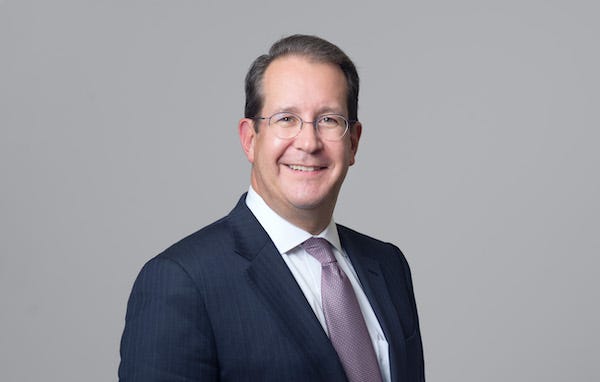
An Inside Look At Litigation Finance: An Interview With Chris Bogart
This is a free preview of a paid episode. To hear more, visit davidlat.substack.comWelcome to Original Jurisdiction, the latest legal publication by me, David Lat. You can learn more about Original Jurisdiction by reading its About page, and you can email me at [email protected]. This is a reader-supported publication; you can subscribe by clicking on the button below. Thanks!One of the most important developments in the legal world in the past decade has been the rise of litigation finance, which has emerged from relative obscurity—and even illegality in certain states—to become a multibillion-dollar industry. Initially viewed by many with either skepticism or befuddlement, litigation finance has gone mainstream, and today numerous Am Law 100 firms and Fortune 500 companies work with funders for mutual benefit.But litigation finance remains controversial in some quarters, and its rapid growth has led to calls for greater regulation or disclosure. Based in part on such issues, I have long been interested in the field, dating back to when I covered it for Above the Law. Recent news stories—including litigation between a top funder and a former client, followed by a high-profile trial last month in the Southern District of New York—have brought litigation funding back into the headlines, making now an opportune time to explore it on this podcast.In picking a guest, I adhered to my approach of going straight to the top, speaking with the #1 executive at the #1 funder: Christopher Bogart, co-founder and CEO of Burford Capital, the world's largest provider of legal finance. In our conversation, Chris and I covered his remarkable legal career, in which he became the general counsel of a Fortune 50 company just seven years out of law school; the early days of litigation finance, including the founding of Burford; attacks on litigation funding, including claims that it makes litigation more widespread, long-running, and expensive; and his own firm’s public beef with Sysco, the food-distribution giant and former Burford client. If you’re not familiar with litigation finance—how it works, how it has evolved, and how it’s transforming the legal and investing worlds—you’ll want to listen to this episode.Show Notes:* Christopher Bogart bio, Burford Capital LLC* An Innovator’s Journey: From Star Litigator to Litigation Finance, by Russ Banham for Carrier Management* A $16 Billion Wall Street Lawsuit for the Ages, by Eriq Gardner for Puck* Burford Capital Eyes Billions in Payout for Argentina Suit, Bloomberg LawPrefer reading to listening? For paid subscribers, a transcript of the entire episode appears below.Sponsored by:NexFirm helps Biglaw attorneys become founding partners. To learn more about how NexFirm can help you launch your firm, call 212-292-1000 or email [email protected].
44:4709/08/2023
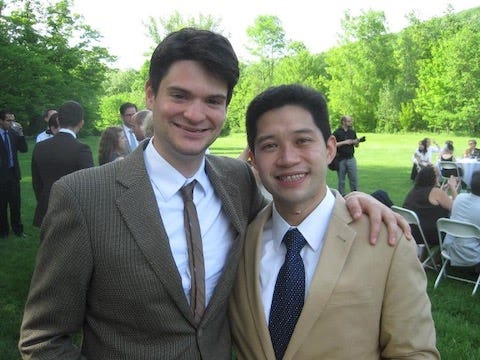
Irreconcilable Differences: An Interview With... My Husband, Zachary Baron Shemtob
This is a free preview of a paid episode. To hear more, visit davidlat.substack.comWelcome to Original Jurisdiction, the latest legal publication by me, David Lat. You can learn more about Original Jurisdiction by reading its About page, and you can email me at [email protected]. This is a reader-supported publication; you can subscribe by clicking on the button below. Thanks!Because I was busy welcoming our baby boy into the world, I was unable to procure an outside guest for this week’s podcast. This gave me the opportunity to do something I’ve been wanting to do since the show began: argue with my husband (and not about how to load the dishwasher, which he always gets wrong).My guest this week is my Dear Husband, Zachary Baron Shemtob. Zach is an academic turned lawyer who has written extensively, for both scholarly publications and the popular press, about the Supreme Court, the federal judiciary, and legal theory. He has provocative opinions and unorthodox proposals about these topics, and whether or not you agree with his views—and in this podcast, I mostly disagree—they’re certainly worth some thought. (As a former academic, Zach could probably write a law-review article about each of his ideas, so this 40-minute podcast can’t do them justice.)In this episode, Zach and I discuss “judicial celebrity,” the practice of treating judges like celebs (which Zach finds problematic, even if he would readily admit that it’s not the greatest threat to civilization); his plan to Make SCOTUS Great Again, which involves making the Court bigger and more boring; a potpourri of jurisprudential issues, including originalism, Chevron deference, and the major-questions doctrine; and, finally, movies—including but not limited to My Cousin Vinny and Everything Everywhere All at Once.If you want more confrontation in this podcast and appreciate some good verbal sparring, then this episode is for you. Please let us know your thoughts on this different format, in the comments or by email; if this episode is popular, perhaps I’ll ask Zach to join me again, whether as a guest or a co-host. Enjoy!Show Notes:* Judicial Duty and the Supreme Court’s Cult of Celebrity, by Craig Lerner and Nelson Lund for the George Washington Law Review* Our Kardashian Court (and How to Fix It), by Suzanna Sherry for the Iowa Law Review* Celebrity Justice: Supreme Court Edition, by Rick Hasen for the Green Bag* Reflections on Judging, by Richard A. Posner* The Supreme Court Doesn't Need 9 Justices. It Needs 27, by Jacob Hale Russell for Time* Testimony Before the Presidential Commission on the Supreme Court of the United States, by Akhil Reed AmarPrefer reading to listening? For paid subscribers, a transcript of the entire episode appears below.Sponsored by:NexFirm helps Biglaw attorneys become founding partners. To learn more about how NexFirm can help you launch your firm, call 212-292-1000 or email [email protected].
39:4226/07/2023
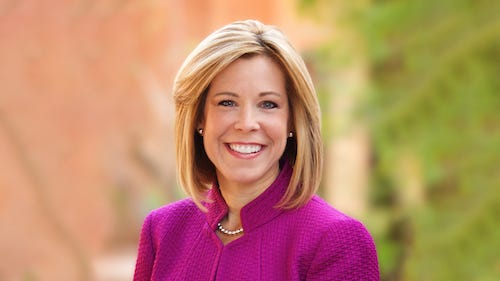
A Conservative Legal Crusader: An Interview With ADF's Kristen Waggoner
This is a free preview of a paid episode. To hear more, visit davidlat.substack.comLast month, in honor of LGBTQ Pride Month, I interviewed Alejandra Caraballo, a leading advocate for transgender rights. After that episode, I heard from listeners who asked me to interview someone on the other side. As a passionate advocate of free speech and viewpoint diversity, I agreed that it would be appropriate to do so.My latest podcast guest is Kristen Waggoner, chief executive officer and general counsel of Alliance Defending Freedom (ADF), which describes itself as “one of the leading Christian law firms committed to protecting religious freedom, free speech, marriage and family, parental rights, and the sanctity of life.” ADF’s opposition to same-sex marriage, transgender rights, and abortion rights has made it a reviled organization on the legal left.Although Kristen isn’t popular among progressives, there’s no disputing that she is an influential and newsworthy attorney. For better or worse, ADF has won 15 cases in the U.S. Supreme Court, and three of them were argued personally by Waggoner—including 303 Creative v. Elenis, one of the biggest cases of the just-completed Term. Writing for the six conservatives, Justice Gorsuch held that the First Amendment protects Kristen’s client, website designer Lorie Smith, from being required under Colorado’s public-accommodations law to make websites for same-sex weddings, which she opposes on religious grounds.In our interview, I posed tough but respectful questions to Kristen about the mission and legal work of ADF, including its designation as a “hate group” by the Southern Poverty Law Center; her recent win in 303 Creative, including an allegation that ADF fabricated one piece of evidence (the “Stewart and Mike” controversy); the next major goal of the conservative legal movement, in the wake of wins like 303 Creative and Dobbs; and her views on “legislating morality” or enshrining Christian views into law (where her comments might surprise you). Despite our many differences—e.g., she opposes same-sex marriage, and I’m in one—I enjoyed and learned a great deal from our conversation, and I’m grateful for her time, insight, and willingness to engage.Show Notes:* Kristen Waggoner bio, Alliance Defending Freedom* Inside the Christian legal powerhouse that keeps winning at the Supreme Court, by Jessica Contrera for the Washington Post* Meet the Lawyer Who’ll Argue at Supreme Court for Christian Baker’s Right to Free Speech, by Ken McIntyre for the Daily Signal* The Supreme Court Doesn’t Care That the Gay Wedding Website Case Is Based on Fiction, by Melissa Gira Grant for the New RepublicPrefer reading to listening? For paid subscribers, a transcript of the entire episode appears below.Sponsored by:NexFirm helps Biglaw attorneys become founding partners. To learn more about how NexFirm can help you launch your firm, call 212-292-1000 or email [email protected].
43:0012/07/2023
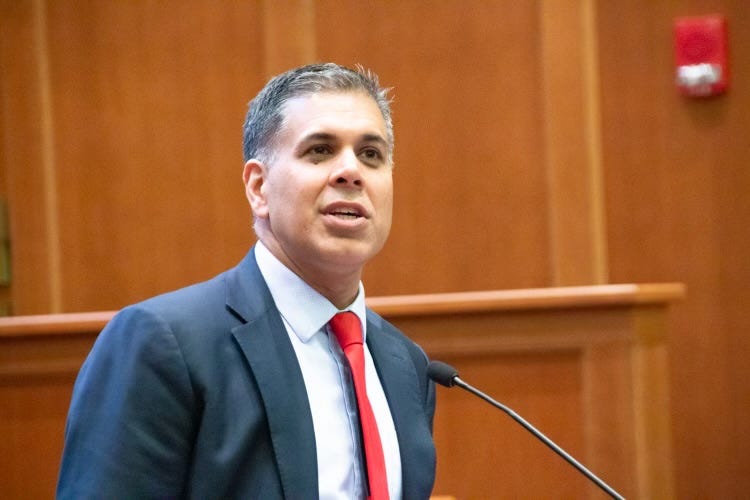
The People's Justice: An Interview With Judge Amul Thapar
This is a free preview of a paid episode. To hear more, visit davidlat.substack.comWelcome to Original Jurisdiction, the latest legal publication by me, David Lat. You can learn more about Original Jurisdiction by reading its About page, and you can email me at [email protected]. This is a reader-supported publication; you can subscribe by clicking on the button below. Thanks!The Supreme Court has never had an Asian-American justice, but that could change with the next nomination, especially in a Republican administration. Several leading SCOTUS candidates on the right are Asian American, and the prospect of a historic “first” could make it marginally more difficult for Democrats to oppose the nominee.One of the top prospects, and the Asian American who has come the closest to SCOTUS in the past, is Judge Amul Thapar (6th Cir.). In 2018, Judge Thapar interviewed at the White House for the seat that ultimately went to Justice Brett Kavanaugh. And one can see why Judge Thapar was considered: he’s a highly respected jurist with extensive experience as both a trial and appellate judge and an impressive, well-rounded résumé, including experience as U.S. Attorney for the Eastern District of Kentucky and in Biglaw.Now Judge Thapar has added a new line to his CV: author. Earlier this month, Regnery published his first book, The People's Justice: Clarence Thomas and the Constitutional Stories that Define Him. By looking at the personal stories behind some of Justice Thomas’s most famous cases, Judge Thapar argues that the justice’s originalism often leads to results that favor the powerless over the powerful—which is why Judge Thapar has dubbed Justice Thomas “the people’s justice.”I had been wanting to have Judge Thapar on the podcast for quite some time, and his book’s publication provided an excellent occasion for welcoming him. In our conversation, we discussed his inspiring personal story as the son of immigrants, his interview for the high court, his success as a feeder judge, and The People’s Justice—including how recent controversies over Justice Thomas affect the case for him as a man of the people. Thanks to Judge Thapar for joining me, and I hope you enjoy listening to this episode as much as I enjoyed recording it.Show Notes:* The People's Justice: Clarence Thomas and the Constitutional Stories that Define Him, Amazon* Potential nominee profile: Amul Thapar, by Edith Roberts for SCOTUSblog* Judge Amul Thapar On Discovery And The Civil Justice System, by David Lat for Above the LawPrefer reading to listening? For paid subscribers, a transcript of the entire episode appears below.Sponsored by:NexFirm helps Biglaw attorneys become founding partners. To learn more about how NexFirm can help you launch your firm, call 212-292-1000 or email [email protected].
41:4528/06/2023
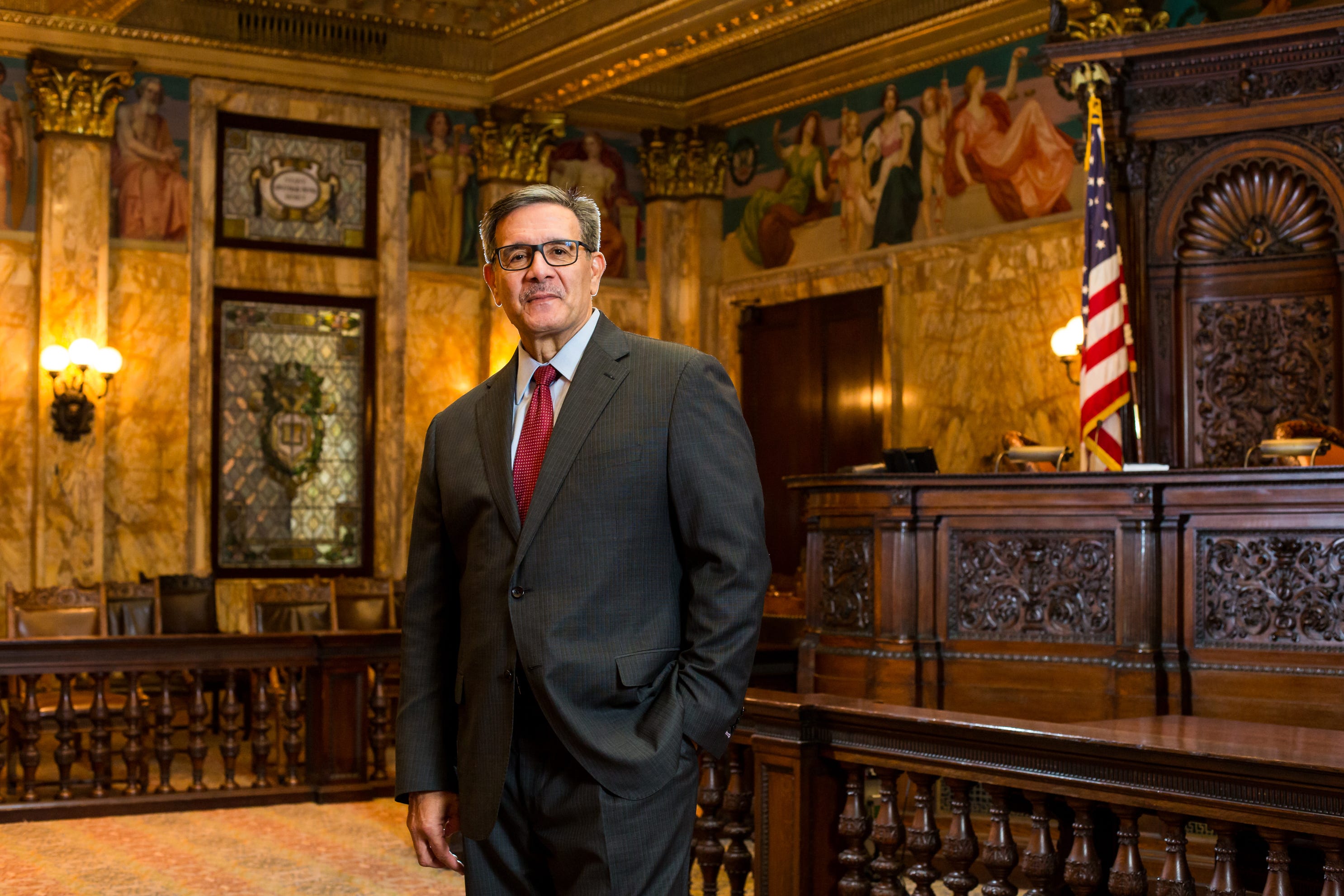
On Judging And The Rule Of Law: An Interview With Justice Rolando Acosta
This is a free preview of a paid episode. To hear more, visit davidlat.substack.comWelcome to Original Jurisdiction, the latest legal publication by me, David Lat. You can learn more about Original Jurisdiction by reading its About page, and you can email me at [email protected]. This is a reader-supported publication; you can subscribe by clicking on the button below. Thanks!I’ve had several current and former federal judges on this podcast (with more in the pipeline), but I have not yet had a state judge as a guest—even though around 95 percent of cases are filed in state court. So I was delighted to interview Justice Rolando Acosta, who during more than 25 years on the bench was one of the most prominent and respected judges in the country. He served as a trial and appellate judge in New York from 1997 until earlier this year, when he stepped down after six years as Presiding Justice of the Appellate Division, First Department. In March 2023, he joined the New York office of Pillsbury Winthrop as a litigation partner.In our conversation, Justice Acosta and I discussed his childhood growing up in the Dominican Republic, where living under a dictatorship instilled in him a deep appreciation for democracy; his time in college as a star pitcher for Columbia, which led him to seriously consider a career in professional baseball; his community organizing and work as a Legal Aid lawyer, public service that culminated in his judicial career; and threats to judicial independence—including his candid comments on the failed nomination of Justice Hector LaSalle to the New York Court of Appeals.My thanks to Justice Acosta—or Rolando, as he asked me to call him—for joining me. You can listen to our discussion via the embed at the top of this post, or through Apple Podcasts, Spotify, or your podcasting platform of choice.Show Notes:* Rolando Acosta bio, Pillsbury Winthrop Shaw Pittman* How To Modernize an Appellate Court in Five Years, by Rolando Acosta for the New York Law Journal* A Sitting Justice Speaks To Troubled Times: An Interview With Hon. Rolando T. Acosta, by Joel Cohen for the New York Law Journal* As First Department Presiding Justice Acosta Plans to Retire, Lawyers Reflect on His Career and Replacement Process Starts, by Jason Grant for the New York Law JournalPrefer reading to listening? For paid subscribers, a transcript of the entire episode appears below.Sponsored by:NexFirm helps Biglaw attorneys become founding partners. To learn more about how NexFirm can help you launch your firm, call 212-292-1000 or email [email protected].
31:4314/06/2023
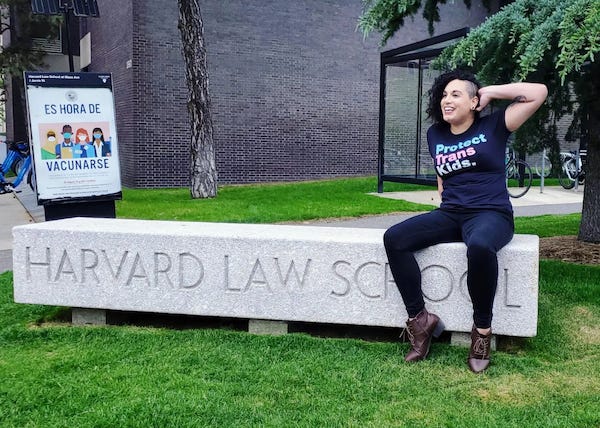
A Leading Voice For Transgender Rights: An Interview With Alejandra Caraballo
This is a free preview of a paid episode. To hear more, visit davidlat.substack.comTomorrow is the first day of June, LGBTQ Pride Month. Happy Pride!In honor of the occasion, I interviewed Alejandra Caraballo, one of the nation’s most prominent advocates for—and authorties on—transgender rights. She is a clinical instructor at Harvard Law School, where she and Anya Marino are the first transgender women of color to teach at HLS. Before entering academia, Alejandra worked as a litigator at the Transgender Legal Defense and Education Fund and the LGBTQ Law Project at the New York Legal Assistance Group.In my “stump speech” about free speech and ideological diversity in the legal profession, I urge my listeners to seek out and engage with people they disagree with. Following my own advice, I reached out to Alejandra, with whom I have frequently sparred on Twitter. She was kind enough to join me for a discussion that covered controversial and sensitive subjects, including trans athletes participating in girls and women’s sports, the access of children and teens to gender-affirming care, and more.My thanks to Alejandra for her willingness to engage in good-faith debate. You can listen to our candid conversation via the embed at the top of this post, or through Apple Podcasts, Spotify, or your podcasting platform of choice.Show Notes:* Alejandra Caraballo bio, Harvard Law School* Meet the First Trans Women of Color to Teach at Harvard Law, by Orion Rummler for The 19th* Alejandra Caraballo (@Esqueer_), TwitterPrefer reading to listening? For paid subscribers, a transcript of the entire episode appears below.Sponsored by:NexFirm helps Biglaw attorneys become founding partners. To learn more about how NexFirm can help you launch your firm, call 212-292-1000 or email [email protected].
53:0431/05/2023
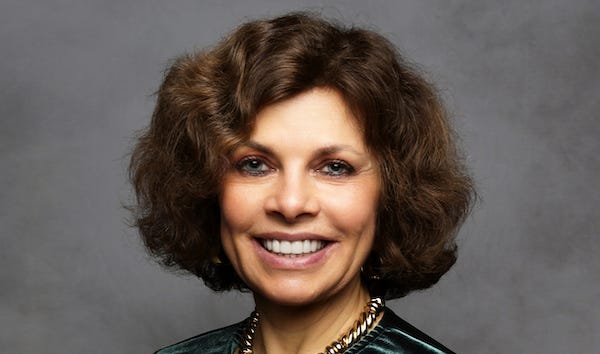
A Card-Carrying Defender Of Free Speech: An Interview With Nadine Strossen
This is a free preview of a paid episode. To hear more, visit davidlat.substack.comMany readers of Original Jurisdiction, who subscribed to this newsletter because of my coverage of free-speech controversies at law schools, are deeply interested in—and firmly committed—to the First Amendment and free speech. If you’re one of these readers, then you’ll enjoy my latest podcast episode: a conversation with Professor Nadine Strossen, one of our country’s leading scholars—and staunchest defenders—of civil liberties, including but not limited to free speech.From 1991 to 2008, Nadine served as President of the American Civil Liberties Union (ACLU). She taught constitutional law for many years at New York Law School, where she was the John Marshall Harlan II Professor of Law, and she is the author of Hate: Why We Should Resist It with Free Speech, Not Censorship (2018). Her latest book, Free Speech: What Everyone Needs to Know, will be published this fall.In our conversation, Nadine and I discussed her fascinating family background, including the fact that her father was a Holocaust survivor; her early legal career, which included time at Sullivan & Cromwell; and her assessment of the state of free speech in the United States today, which faces threats from both the right and the left. We also engaged in a debate in which I played the role of devil’s advocate, presenting what I think are the strongest arguments for speech restrictions—and Nadine eloquently defended free expression and open discourse, as she has done for decades.I’m so grateful to Nadine—for joining me on the podcast, and for all her work over the years in defense of free speech and other core civil liberties. You can listen to the podcast via the embed at the top of this post or your podcasting platform of choice.Show Notes:* Nadine Strossen bio, New York Law School* Nadine Strossen profile and recent writings, Foundation for Individual Rights and Expression (FIRE)* The First Amendment Is the Greatest Defense for the Powerless and Marginalized, by Jacob Mchangama and Nadine Strossen for the Daily Beast* Make Freedom of Speech Liberal Again, by Tunku Varadarajan for the Wall Street JournalPrefer reading to listening? For paid subscribers, a transcript of the entire episode appears below.Sponsored by:NexFirm helps Biglaw attorneys become founding partners. To learn more about how NexFirm can help you launch your firm, call 212-292-1000 or email [email protected].
59:2017/05/2023
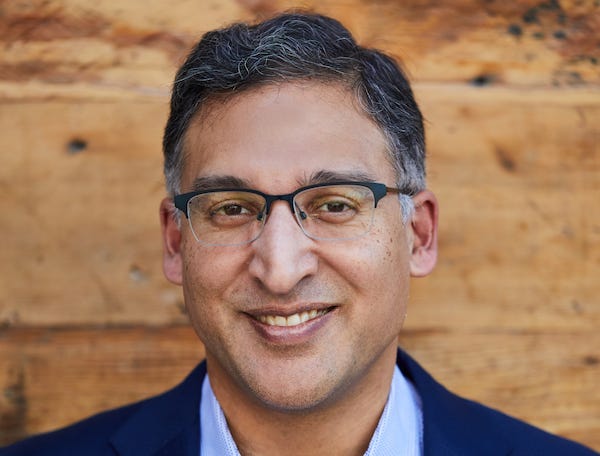
From The Classroom To The Courtroom: An Interview With Neal Katyal
This is a free preview of a paid episode. To hear more, visit davidlat.substack.comWho is the leading public intellectual of the Supreme Court bar? Neal Katyal—Hogan Lovells partner, Georgetown Law professor, and former Acting Solicitor General—would have a very strong claim to the title.Many SCOTUS advocates focus on winning high-court cases for their clients, but Neal aspires to more: he contributes to our national discourse. His scholarship has been published in top law reviews, including the Harvard Law Review and Yale Law Journal. He writes op-eds for leading newspapers, including the New York Times and Washington Post. He authored a Times bestseller, Impeach: The Case Against Donald Trump. He makes frequent appearances on television and radio as a legal-affairs commentator. He comments on the news of the day to his more than 800,000 Twitter followers. And later this year, he’s coming to Substack—exciting news that he shared in my recent podcast interview of him.I’ve known Neal for a long time, and I’d been wanting to have him on the show for a while. Now turned out to be a great time, for two reasons. First, just last week, he made his 50th oral argument before the Supreme Court—a major milestone that few SCOTUS advocates can claim. Second, May is Asian American and Pacific Islander (AAPI) Heritage Month, and Neal has argued more Supreme Court cases than any other AAPI lawyer—or, for that matter, any other lawyer of color. Congratulations to Neal on his 50th SCOTUS argument, and thanks to him for taking the time to join me.Show Notes:* Neal Katyal bio, Hogan Lovells US LLP* Neal K. Katyal bio, Georgetown Law* Neal Kumar Katyal, Oyez* Neal K. Katyal, Chambers and Partners* Hogan Lovells Partner Neal Katyal Celebrates 50th Supreme Court Oral Argument, National Law JournalPrefer reading to listening? For paid subscribers, a transcript of the entire episode appears below.Sponsored by:NexFirm helps Biglaw attorneys become founding partners. To learn more about how NexFirm can help you launch your firm, call 212-292-1000 or email [email protected].
46:2503/05/2023
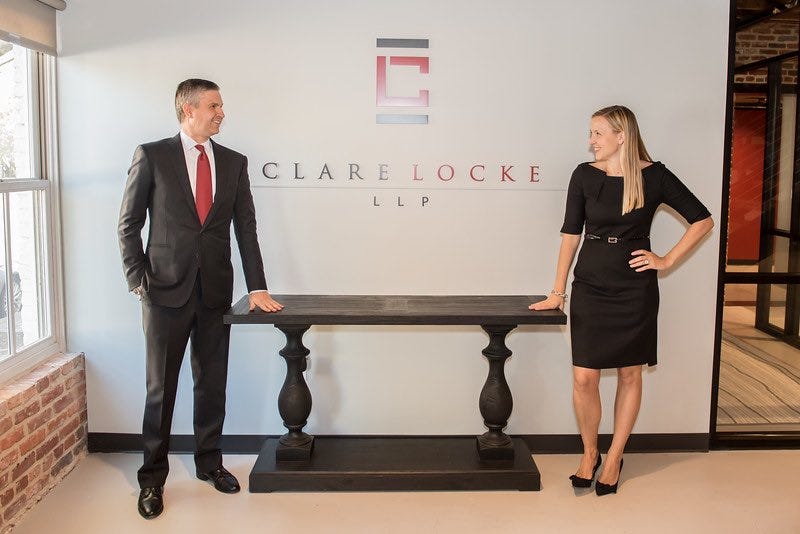
Inside Dominion v. Fox: An Interview With Tom Clare And Libby Locke
This is a free preview of a paid episode. To hear more, visit davidlat.substack.comIf you’ve been defamed, and it don’t look good, who you gonna call?Clare Locke (if you can afford them). Founded in 2014 by Tom Clare and Libby Locke, who left the partnership of Kirkland & Ellis to build a plaintiff-side defamation practice free from the constraints of Biglaw, Clare Locke has become the go-to firm for major corporations and high-net-worth individuals who have suffered reputational attacks.I’ve known Tom and Libby for years, and I’ve been meaning to invite them on the podcast for a long time. After they secured what’s believed to be the largest defamation settlement in history—$787.5 million for their client, Dominion Voting Systems, in the landmark litigation of Dominion v. Fox—I couldn’t wait any longer.So this is actually a bonus episode. I usually post episodes every other Wednesday, I posted an episode last week, and my next episode—which also has an amazing guest—will go live next Wednesday, May 3. But in light of last week’s Dominion settlement, I didn’t want to delay, so I’m slipping in this episode now.It’s also a double episode, which is why it’s longer than usual—but worth it. I interview Libby and Tom about their interesting personal and professional backgrounds; their decision to leave Kirkland to launch a boutique firm, including why it would be impossible to have a practice like theirs in Biglaw; what it’s like to practice alongside your spouse; how they got involved in the Dominion case, including why the settlement was so darn large; and the future of New York Times v. Sullivan.In the interest of getting this out in timely fashion, I have not included in a transcript. It’s surprisingly laborious to clean up the auto-generated transcript, since the voice-recognition technology has a long way to go. So if you’d like to get the substance of our fascinating conversation, please listen to our dulcet tones, via the embed at the top of this post or in your podcast player of choice. Enjoy!Show Notes:* Thomas A. Clare bio, Clare Locke LLP* Elizabeth M. Locke bio, Clare Locke LLP* ‘Brilliant and Lucky’: Clare Locke Makes Headlines by Keeping Clients Out of Them, American Lawyer* Winning Litigators: Tom Clare & Libby Locke, Clare Locke, National Law Journal* Clare Locke LLP, Chambers and PartnersSponsored by NexFirm, which helps Biglaw attorneys become founding partners. To learn more about how NexFirm can help you launch your firm, call 212-292-1000 or email [email protected].
01:26:1626/04/2023
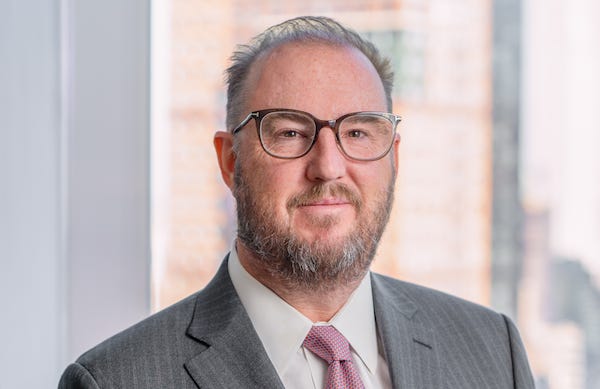
Leading Litigator Leaves Latham To Launch A Boutique: An Interview With Chris Clark
This is a free preview of a paid episode. To hear more, visit davidlat.substack.comIn the last episode of this podcast, I wondered: are boutiques the future of litigation? If you’re looking to make that case, today’s guest would be a star witness.Last week, leading litigator Christopher Clark left Latham & Watkins, one of Biglaw’s biggest and best names, to launch his own boutique. Together with Patrick Smith, a former colleague of his from the U.S. Attorney’s Office, and Rodney Villazor, another former federal prosecutor, Clark is a founding partner of Clark Smith Villazor.For this new podcast episode, Clark and I discussed his time at the U.S. Attorney’s Office for the Southern District of New York, which he joined right after clerking; his time in Biglaw, including Dewey & LeBoeuf during its downfall; why he admires his most controversial client, Hunter Biden; helpful advice for representing billionaires; and, finally, a key skill for success as a lawyer—which, sadly, many lawyers overlook.Thanks to Chris Clark for joining me, and good luck to him, Patrick, and Rodney, as they launch and grow their new firm.Sponsored by NexFirm, which helps Biglaw attorneys become founding partners. To learn more about how NexFirm can help you launch your firm, call 212-292-1000 or email [email protected].
32:3319/04/2023
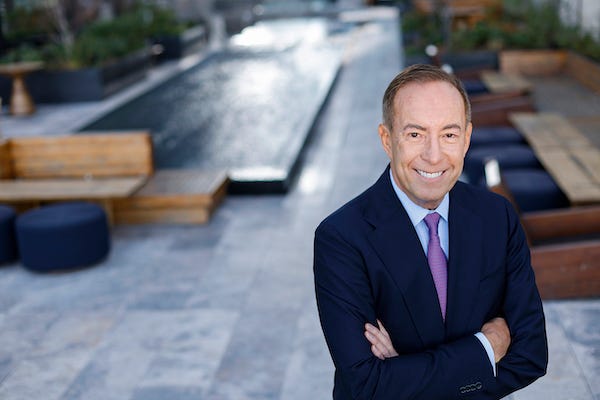
Dare To Be Great: An Interview With Steven Molo
This is a free preview of a paid episode. To hear more, visit davidlat.substack.comAre boutique firms the future of litigation? Compared to many of their Biglaw counterparts, they’re often more nimble, innovative, and willing to take risks. Unattached to giant transactional practices, they have fewer conflicts and other client-related concerns, allowing them to take on interesting, cutting-edge cases that Biglaw firms might pass on to avoid controversy.Founded and staffed by lawyers who left top Biglaw firms, elite boutiques can offer the same if not better lawyering and client service, frequently under more favorable or flexible fee arrangements. And from the perspective of the talent, boutiques often boast enhanced collegiality among partners and partnership prospects for associates.How do former Biglaw partners build a world-class boutique? I recently spoke with Steven Molo, one of the top courtroom advocates in the country, about how he and Jeffrey Lamken, a leading Supreme Court lawyer, launched MoloLamken in 2009—and turned it into one of the finest litigation firms in the United States, if not the world. We discussed their vision for the firm at its founding, their approach to hiring and retaining talent, how they’ve managed to cultivate diversity in their firm’s ranks, and several current issues in the news, including law school culture wars and the pandemic’s effect on the legal profession. Thanks to Steve for his time, insight, and friendship over the years.Sponsored by NexFirm, which helps Biglaw attorneys become founding partners. To learn more about how NexFirm can help you launch your firm, call 212-292-1000 or email [email protected].
44:5805/04/2023
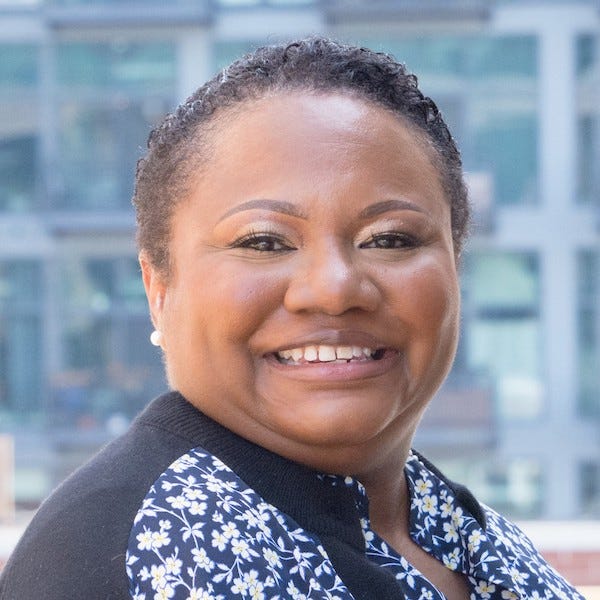
What Employers Want: An Interview With Sonya Som
This is a free preview of a paid episode. To hear more, visit davidlat.substack.comDuring my two-year detour into legal recruiting, I was struck by how many Biglaw attorneys, both associates and partners, want to make the jump to the in-house side. As a result of this keen demand, the competition for desirable corporate-counsel jobs can be fierce, with hundreds of applicants for a single opening.What are in-house employers seeking in their hires? In my latest podcast interview, I explored the topic with Sonya Olds Som, a prominent figure in the world of legal search (and, full disclosure, an old friend). We also discussed her interesting and impressive life and career, which took her from a challenging childhood in Detroit to Cornell Law School to law firm partnership to Diversified Search Group, a fast-growing and highly regarded company in the executive-search industry, where she serves as a Global Managing Partner and leads the firm’s Legal, Risk, Compliance, and Government Affairs practice.If you enjoy this interview, try and meet Sonya in person, since even a podcast can’t do her justice. She’s helping to organize or speaking at several events in the next few months, including the National Summit of Black Women Lawyers in Chicago (March 30-April 1), the National Bar Association Annual General Counsel Invitational in New York (May 11-12), and the National Bar Association Annual Corporate Counsel Leadership Summit in Minneapolis (July 31). In case you’re not familiar with it, the National Bar Association (NBA) is the nation’s oldest and largest national association of predominantly African-American lawyers, judges, law professors, and law students.My thanks again to Sonya Som for such a delightful conversation.Show Notes:Sonya Olds Som bio, Diversified Search GroupSonya Olds Som Joins Diversified Search Group as Global Managing Partner, SavoyHow Sonya Som Rebounded From The Recession, And Her Advice For Landing Your Dream Legal Job, by Renwei Chung for Above the LawSponsored by:NexFirm helps Biglaw attorneys become founding partners. To learn more about how NexFirm can help you launch your firm, call 212-292-1000 or email [email protected].
40:1822/03/2023
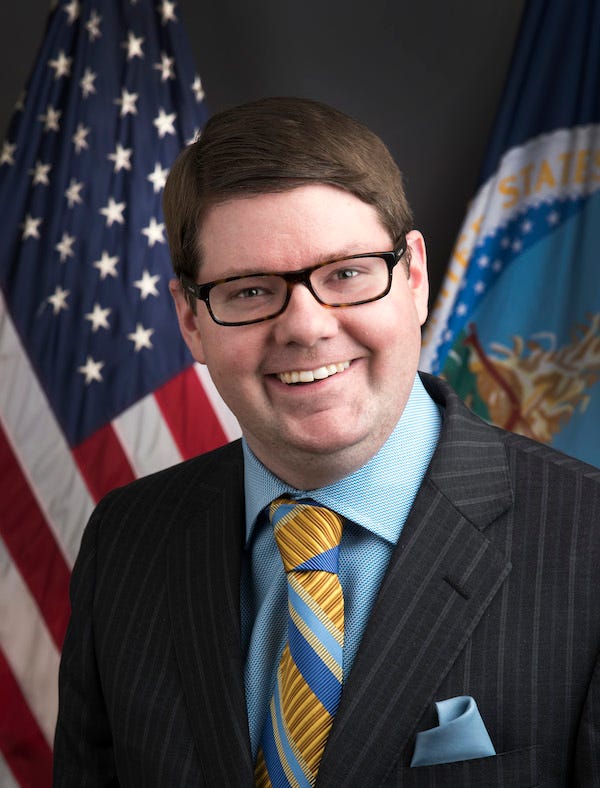
Just Say Yes: An Interview With Judge Stephen Vaden
This is a free preview of a paid episode. To hear more, visit davidlat.substack.comWhat do you know about the U.S. Court of International Trade (CIT)? Are you aware that it’s an Article III court, with life-tenured members who frequently sit by designation on circuit courts across the country? Although I fancy myself an expert on the federal courts, my knowledge of the CIT was pretty sparse until recently.This began to change last November, when I spoke on a panel about the (problematic) practice of judges getting deeply involved in selecting their own successors. I felt the panel went well, and much of the credit belonged to our excellent moderator, Judge Stephen Vaden (who stepped in at the last minute after the passing of our original moderator, Judge Laurence Silberman). I’ve enjoyed getting to know Judge Vaden over the past few months, and I quickly realized I wanted to have him on the podcast.Judge Vaden has served on the CIT since 2020. In this interview, he pulls back the curtain on his court, a fascinating cross between a trial court and the D.C. Circuit—and a great place to clerk for listeners interested in clerkship opportunities.Devotees of the federal judiciary should appreciate this episode for its exploration of the CIT, unique among Article III courts in several ways. But it will also appeal to first-generation lawyers seeking inspiration (Judge Vaden is a farm boy turned federal judge), as well as any lawyers or law students who value sound career advice.
49:5608/03/2023
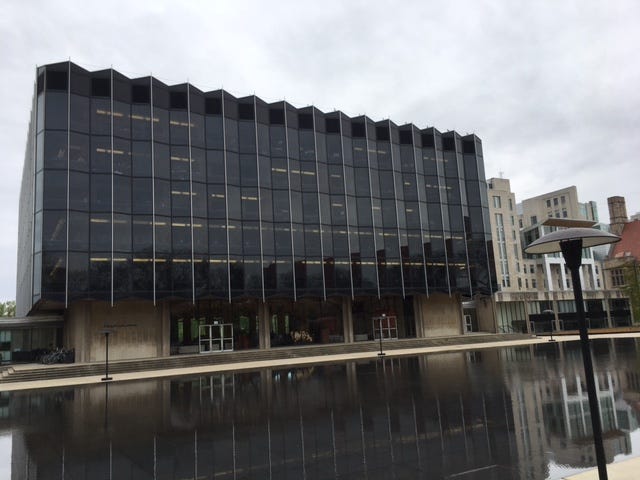
The U.S. News Rankings Drama And The Future Of Legal Education
This is a free preview of a paid episode. To hear more, visit davidlat.substack.comIn almost thirty years of following the world of U.S. legal education, from applying to law schools in fall 1995 to covering them today as a journalist, I don’t think I have seen as consequential a time as the current one. To explain the whirlwind of recent developments, I sought out two of my favorite observers of the legal academy: Dan Rodriguez, former dean of the Northwestern University Pritzker School of Law, and Anna Ivey, former admissions dean at the University of Chicago Law School.When I asked them to join me, I selected as our topic the U.S. News law school rankings—specifically, the withdrawal of dozens of schools from the rankings, followed by the announcement of significant revisions to the rankings methodology. But it’s impossible to discuss the rankings in a vacuum, so we wound up having a wide-ranging discussion that touched on two other possible major changes—abandonment of the LSAT (or any other test) as an admissions requirement, and an end to affirmative action—and the future of legal education more generally.How do Anna Ivey and and Dan Rodriguez really feel about the U.S. News rankings? As former rather than current deans, they spoke freely and didn’t pull their punches. And are they worried or hopeful about what lies in store for U.S. law schools? Find out, in this new installment of the Original Jurisdiction podcast.
45:3222/02/2023
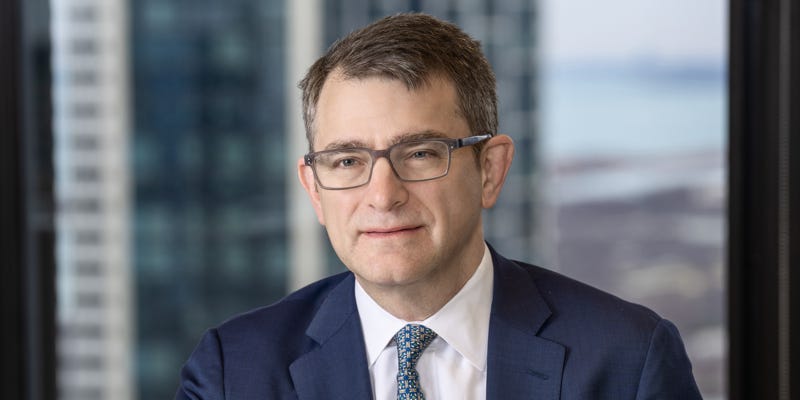
From Lawyer To Judge And Back Again: An Interview With Gary Feinerman
This is a free preview of a paid episode. To hear more, visit davidlat.substack.comGary Feinerman served as a judge for the U.S. District Court or the Northern District of Illinois, with chambers in Chicago, from 2010 to 2022. He also served as the Solicitor General of Illinois, from 2003 until 2007, and as a law clerk to Justice Anthony M. Kennedy. In our interview, we discussed why he left the bench, what it was like to clerk for Justice Kennedy alongside two future Supreme Court justices, his most noteworthy case from his time on the bench, how he worked his magic as a Supreme Court “feeder judge,” and the type of practice he plans to build at Latham & Watkins.
47:4508/02/2023





